Aromatherapy
Aromatherapy is a treatment in which natural plant extracts are used to promote health and well-being.
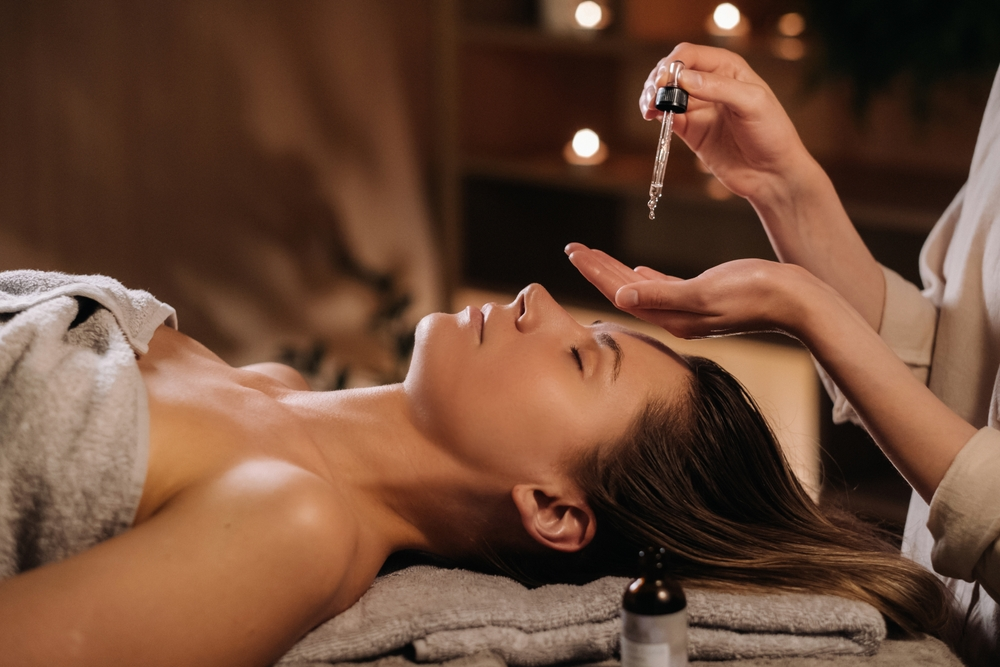
Aromatherapy is using essential oils in a therapeutic manner with a few known principles and techniques underlying it. It is crucial to learn the basic elements of aromatherapy to fully utilize it whether for relaxation, eliminating physical pain, or clarifying the mind. This guide will deal with the most common questions about aromatherapy by talking about the proposed principles, ways in which different methods are used for the enhancement of both physical and emotional health. Now, let us move on to the techniques and the essential details of aromatherapy.
What are the basic principles of aromatherapy?
The basic principles of aromatherapy make use of essential oils which are derivatives of plant oil from which no chemical processing has taken place in order to support the health of an individual both physically and emotionally. Such oils are selected for their medicine and are used in aromatherapy through either inhalation, diffusion, or dabbing onto the skin.
Aromatherapy is an art that is based upon the use of the resource of plant materials for the well-being of the patient. The selection of essential oils is based on the characteristics possessed by each oil so that a specific health issue such as stress, anxiety, pain, or skin ailments can be resolved.
An important basic is that the essential oil, either by inhalation (inserts into the limbic system) or by application onto the skin, always has the implication of promoting the healing system of the body. Each healthy practice restores harmony and is complimented with the whole self and not just individual troubles. These tenets are essential for the mechanisms employed in aromatherapy.
How does one apply aromatherapy through the process of inhalation?
Inhalation is one of the major means of aromatherapy. Mostly, essential oils are inhaled directly by a patient, or they can be diffused in the air, which then stimulates the brain’s limbic system that affects emotions, memory, and even stress responses.
The application process in which an individual uses the process of inhalation in aromatherapy includes inhaling essential oils that will trigger the olfactory system to affect emotional and physical changes. The oil may be inhaled directly from the bottle or by placing a few drops on a cloth and inhaling the fragrance.
Other popular instruments are diffusers, which disperse the particles into the surrounding atmosphere continuously. Upon inhalation, aromas interface with the limbic system of the brain, which is responsible for mood and memory. Examples include the relaxing effect of lavender or how eucalyptus opens airways. Inhalation is particularly effective for stress relief, mood enhancement, and respiratory support.
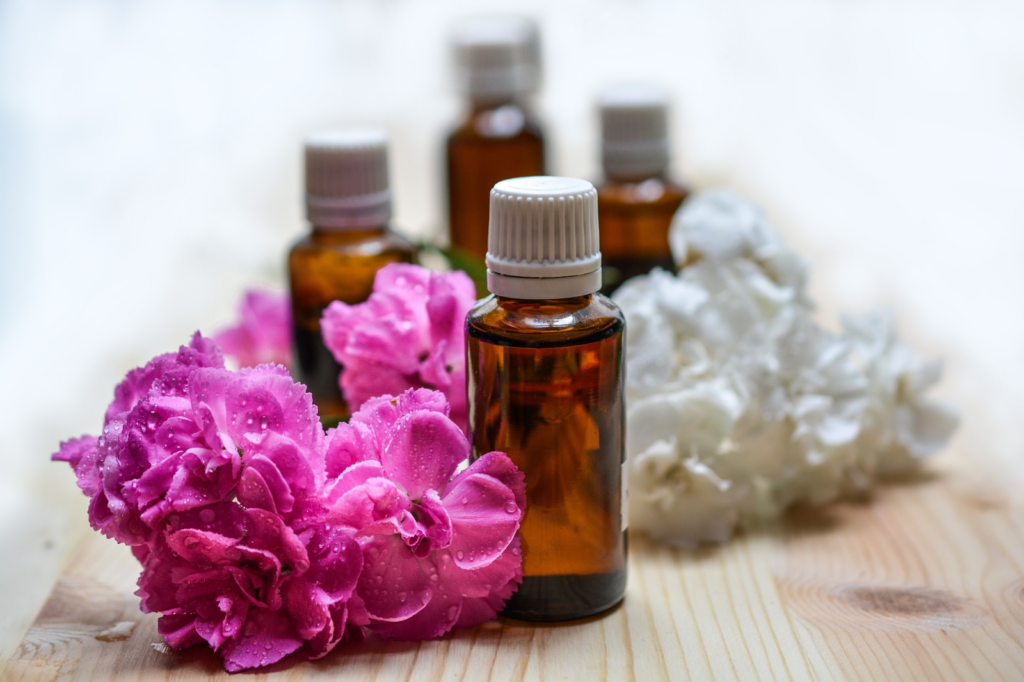
What is the topical application in aromatherapy?
Aromatherapy’s topical application involves dilution of essential oils in carrier oils for application on the skin. This, in turn, is a method through which oils can get into the bloodstream, helping with localized pains, skin issues, and overall relaxation.
Topical application is an extremely common way of aromatherapy, wherein the essential oils must be diluted in a carrier oil containing jojoba or coconut and then applied directly to the skin.
Commonly, it gets used during a massage, making the essential oils seep into the skin and get absorbed into the blood. Its topical application works wonders applied to particular localized problems, such as muscle pain, inflammation, or skin conditions like acne or eczema.
Certain oils, like peppermint and tea tree, are usually employed for the benefit of muscles, while others like chamomile and lavender are applied for calming effects. This can be very useful in the effectuation of proper dilution to avoid irritation.
How does diffusion work in aromatherapy?
Diffusion is a technique of spreading oils into the air by use of a device called a diffuser. This provides a means for the aromatic molecules to permeate the room. This is helpful in creating an atmosphere of tranquility, or even for respiratory health by continuously inhaling the oil.
Aromatherapy diffusions make use of a special device called a diffuser, which spreads the molecules of essential oil into the air. In this way, they create an ambiance in the surroundings. This works beautifully for relaxation, concentration, and even respiratory health. In a diffuser, the particles of essential oils are broken down into minute sizes so that the release into the room is continuous and you can inhale the therapeutic properties.
Some popular essential oils used in diffusers are lavender for stress relief, citrus oils to boost vitality, and eucalyptus for issues regarding respiration. By doing this, one is able to attain convenience for long-lasting effects; besides, it is suitable for personal and professional settings, such as home relaxation or within a spa environment.

What are the benefits of an aromatherapy massage?
Aromatherapy massage treatment incorporates appropriate essential oil use in combination with suitable massage techniques. This allows individuals to relax further, reduce muscular tension, and increase blood circulation. Some commonly used oils include lavender, chamomile, and rosemary, which the therapist uses to target stress, pain, or inflammation.
Aromatherapy massage applies the therapeutic efficacy of aromatic essential oils and the physical benefits derived from massage. This allows for an even deeper feeling of relaxation and can help to alleviate muscle tension, stress, and chronic pain. During a massage, essential oils are always diluted in a carrier oil and applied to the skin, where they can be absorbed into the bloodstream and promote healing. Lavender and chamomile oils will relax and reduce anxiety, whereas rosemary or peppermint could be used for muscle pain and inflammation. Aromatherapy massage will improve circulation, reduce stress levels, and even sleep disorders, which makes it the most popular holistic treatment currently.
Is there any possibility to combine aromatherapy with any other therapies?
Yes, aromatherapy has been combined with other therapies like massage, acupuncture, and meditation to enhance therapeutic results. The application of essential oils aids these complementary practices to help promote states of relaxation, reduce the level of stress, and improve overall being.
Aromatherapy works with many forms of complementary therapies to enhance their function. The use of massage in combination with aromatherapy increases states of relaxation and pain relief since both the physical and emotional sides of healing are being targeted.
Essential oils can be applied in combination with acupuncture to stimulate circulation, which may further stimulate meridian points. The practices of meditation can be complemented through the diffusing of calming oils, such as sandalwood and frankincense, to heighten the level of mindfulness and relaxation.
Conclusion
Aromatherapy is the branch of complementary medicine that studies the therapeutic use of essential oils to promote better health on both physical and emotional levels. There are appropriate ways in which aromatherapy can be practiced, ranging from breathing and spraying to applying oils and using skillful hand movements. Being aware of how those principles are carried out makes everything much better and enjoyable. You will also appreciate its complete healing capabilities in conjunction with other therapies by incorporating aromatherapy to everyday use.
Aromatherapy
Aromatherapy is a treatment in which natural plant extracts are used to promote health and well-being.
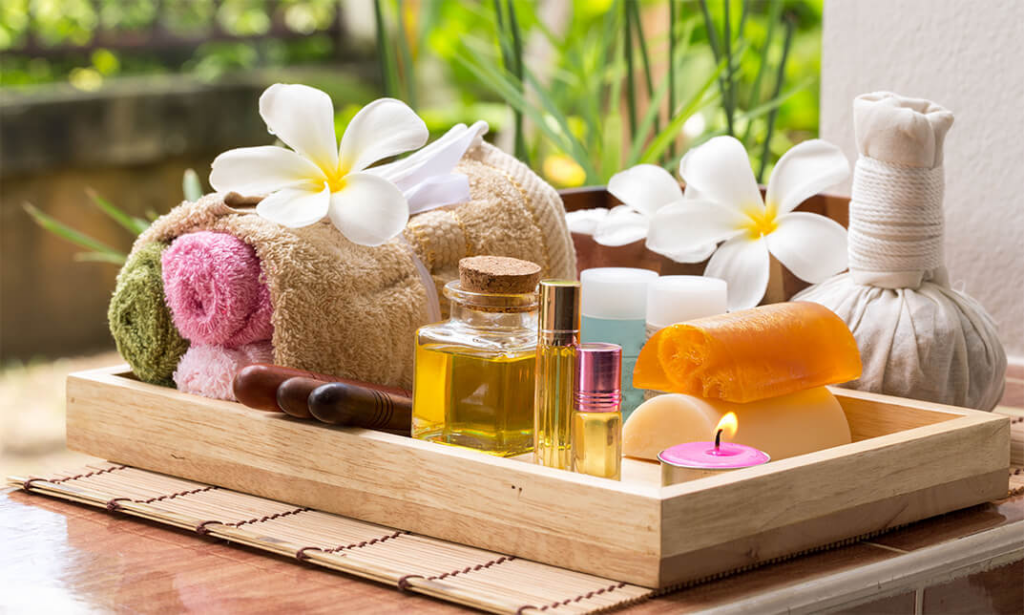
More recently, aromatherapy has emerged as an increasingly popular approach to health because of the use of essential oils in a whole manner. An introduction of natural plant extracts such as in aromatherapy addresses physical, emotional, and mental health. In this guide, common queries on aromatherapy are answered and its applications, benefits, and practitioners are examined. Quite a number of people are beginning to appreciate the art of aroma and this article gives a clear perspective of what this has to offer.
What is aromatherapy and how is it carried out?
Aromatic therapy is a complete treatment that utilizes essential oils for the purposes of health enhancement. The oils act on the brain and body through inhalation or topical application to trigger relaxation, pain relief, emotional balance, and other responses.
The practice of aromatherapy is concerned with the use of essential oils that the person can apply, inhale, or externally rub. These oils are odoriferous. These are vapors inhaled and act on internal organs, especially the brain, and this action belongs to a part of the nervous system called the limbic system, which controls emotions as well as certain physical responses.
Sometimes lavender puts the mind at rest; sometimes peppermint brings renewed vitality. When these essences are used in a nutshell, they interact with the bloodstream when the altitudes are submitted to the skin. Aromatherapy brings the synthesis of emotional and physical overexertion which makes this treatment boundaries in enhancing one’s health.
What are the advantages of aromatherapy?
There are many benefits associated with aromatherapy, such as stress relief, sleep improvement, pain management, and uplifting of mood. Essential oils such as lavender, eucalyptus, and peppermint help improve anxiety disorders, insomnia, muscle aches, and respiratory problems.
Aromatherapy leads to a variety of healing benefits by realizing the therapeutic properties of the essential oils. Due to it being an excellent source of relaxation and calmness and its use for the treatment of anxiety, it is best known in the list of stress-relievers. Eucalyptus and peppermint oils are both very helpful against respiratory distress that covers conditions like congestion.
Ginger and rosemary are two other oils that help in removing muscle soreness and inflammation. Besides, aromatherapy has been found effective in improving quality of sleep, increasing power to concentrate, and elevating the mood, turning it into a holistic approach toward both physical and emotional challenges.
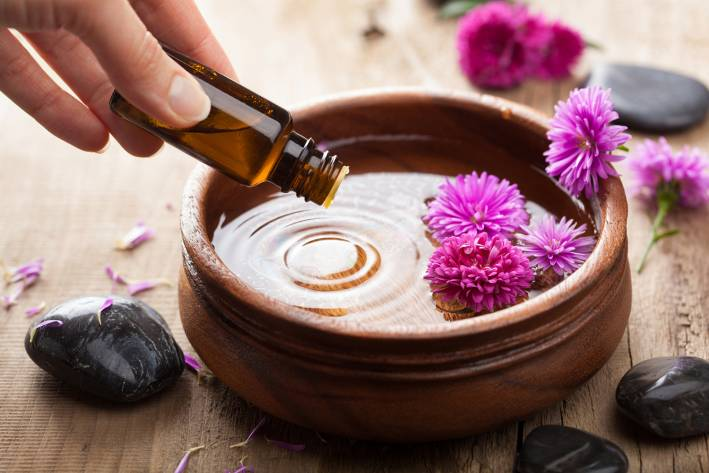
How can aromatherapy be used?
Aromatherapy might be used via inhalation, diffusion, or topical application. In inhalation, there was a need to just breathe in the essential oils. Diffusion spreads the aroma in the atmosphere, and topical application involves massage or application of diluted oil on the skin.
Aromatherapy may be performed in a variety of ways, including: Inhalation, which can include the direct inhalation of essential oils themselves or through steam; this might have an immediate effect by calming or invigorating a person.
Diffusion involves the release of essential oils into the atmosphere with the help of a diffuser to create a therapeutic setting that is best for relaxing or focusing on something. Topical application means oils are absorbed through the skin, usually in massaging or even in blends, to hit specific areas causing body pains or skin issues. Each caters to different needs, and a combo of approaches can boost overall effectiveness for aromatherapy treatments.
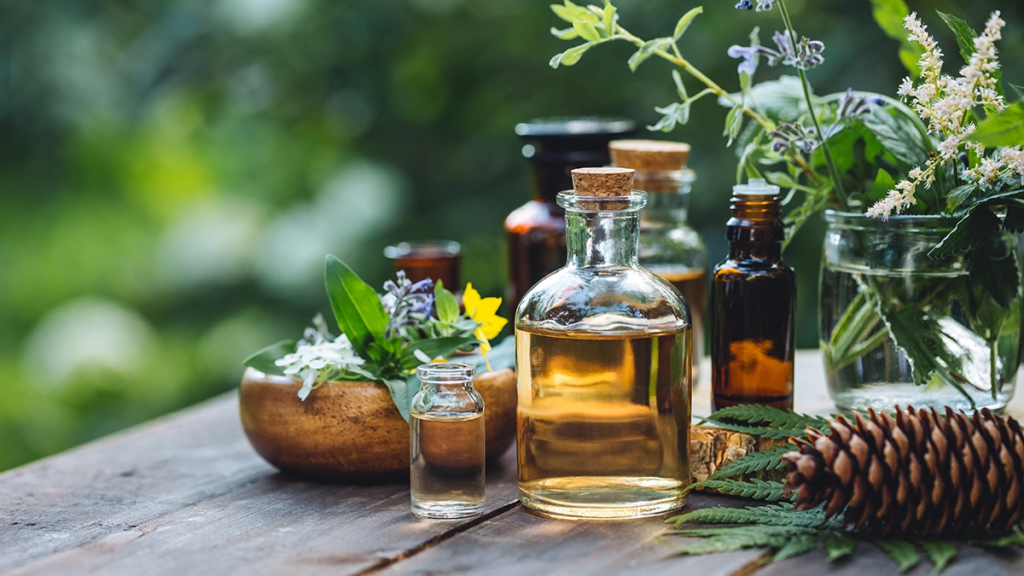
What conditions does aromatherapy help with?
Conditions that aromatherapy can deal with include stress, anxiety, insomnia, chronic pain, headaches, and respiratory issues. Essential oils commonly used for various health concerns include lavender, chamomile, peppermint, and eucalyptus.
Aromatherapy is in a position to combat various physical and emotional illnesses. For the purposes of stress and anxiety, there exist oils like lavender and chamomile, which are responsible for calming the mind and soul. To those with sleeping disorders, though, the same oils invoke sweet sleep.
Peppermint and eucalyptus are among the oils used as remedies for headaches and respiratory problems such as sinus congestion or allergies. Other oils like ginger or frankincense may also assist in resolving chronic pain and inflammation. All in all, aromatherapy offers another natural solution for many complaints.
How do I find a qualified aromatherapy practitioner?
To Locate a competent practitioner in aromatherapy, it is advisable to verify current certifications for respected organizations such as the National Association for Holistic Aromatherapies (NAHA). Focus on the degree of experience and counselling to your specific needs.
When looking for an aromatherapist who is properly certified and reputable, one must be very alert. The National Association for Holistic Aromatherapy (NAHA) and the International Federation of Professional Aromatherapists (IFPA) are examples of such associations that protect the safety of the public by restricting practitioners within set training and safety guidelines.
Find someone who knows the uses of essential oils, the art and science of blending essential oils, and any contraindications of essential oils including any medical conditions. A thoughtful practitioner will also take into consideration all factors concerned in the area of treatment planning.
Conclusion:
Aromatherapy is defined as a natural and holistic way of improving well-being with the help of essential oils. In doing so, it includes both the physical and mental conditions making it a multi-functional tool for relaxing, relieving pain, or clearing the mind. However, since what one intends to get from aromatherapy is quite complicated, it is important to appreciate its potential benefits, applications, and safety measures. So whether done on one’s own or with a trained therapist, aromatherapy can help improve the overall health and well-being of an individual in daily life.
Aromatherapy
Aromatherapy is a treatment in which natural plant extracts are used to promote health and well-being.
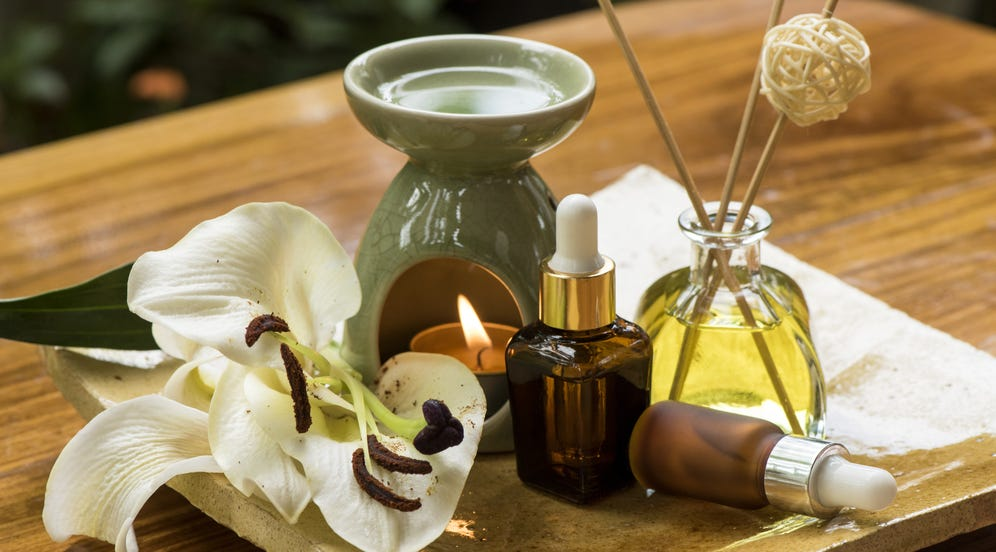
Aromatherapy is a treatment in which natural plant extracts are used to promote health and well-being. Sometimes called essential oil therapy, it uses aromatic essential oils for medicinal purposes to improve physical, emotional, and spiritual health.
Understanding Aromatherapy: An Overview
Aromatherapy is an important holistic treatment using natural plant extracts, also called essential oils, which enhance physical, emotional, and mental well-being. The practice of aromatherapy originated in ancient lands like Egypt, China, and India, where plants were traditionally utilized for medicinal purposes.
These essential oils are obtained through different techniques from flowers, leaves, roots, or seeds and may be applied either through inhalation, topical application, or by being diffused to assist with health and well-being.
This modality is primarily utilized to enhance psychological and physical wellness. Different varieties of essential oils have different specific healing properties, for example, lavender calms and peppermint refreshes the mind.
Oftentimes this is given with massage therapy, yoga, meditation, and other complementary therapies for better effectiveness. Although aromatherapy can cure a host of illnesses, a proper understanding of basic principles and applications would ensure safe and efficacious application.
History of Aromatherapy
The origins of aromatherapy can be traced back over many centuries. Ancient Chinese, Indian, Egyptian, and other cultures utilized plant components with pleasing scents in balms, resins, and oils.
These substances were employed both for their cosmetic and medicinal benefits as well as their religious significance, where they were appreciated for possessing physical healing powers alongside mental or psychological properties. For instance, ancient Egyptians used them during the embalming process while traditional Chinese medicine saw them as important elements because of their ability to heal people.
Principles and Methods Applied in Aromatherapy
Aromatherapy is an approach that is based on the principle that aromas, particularly essential oils derived from plants, may have a positive mind-body influence. The basic principle is to utilize the therapeutic qualities of certain plant-based oils through direct contact with the limbic system in the body, which regulates emotions, memories, and physical sensations. When diffused into the air and inhaled, the scent of the essential oil can trigger a response in the brain to reduce levels of stress, anxiety, and even pain.
There are number of techniques followed in aromatherapy, which include the following:
- Inhalation: This is the most common technique. Diffusion of oils in the air by which the user breathes them in, thereby inducing effects through olfactory responses.
- Application: Oils may be absorbed into the skin in a diluted form with carrier oils, such as coconut or jojoba oil, directly during massages or in skin treatments.
- Bathing: The addition of essential oils to bath water can provide relaxation and help absorb their benefits via the skin.
- Compresses: Hot or cold water is added to the essential oils, and the resulting solution is applied to the body with a cloth to soothe the localized discomfort.
Each method of application will be indicated by the desired outcome, and the use of oils in proper dilution is made in order to avoid adverse reactions.
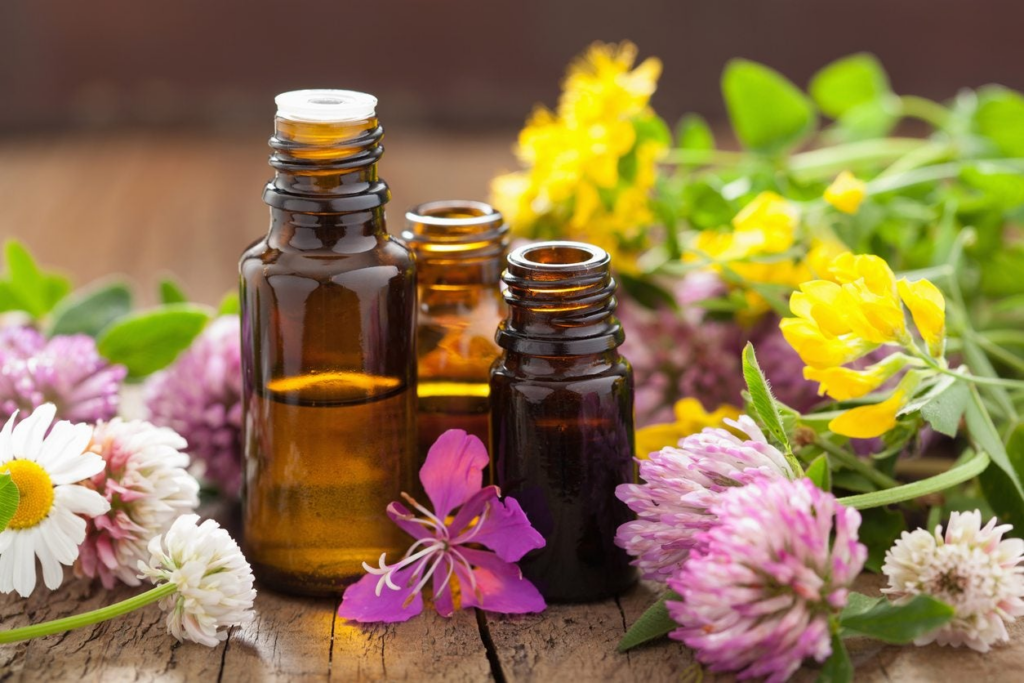
Healing Disorders Through Aromatherapy
Because of the wide circumferences of healing that aromatherapy provides, it is preferred by many patients who want to use natural modes of treatment. Its scope is broad usually involving combinations of emotional, physical, and psychological aspects.
- Emotional Benefits: Essential oils, particularly lavender, chamomile, and rose, possess calming effects and induce relaxation to anxiety, stress, and insomnia diseases. Frankincense essential oil is also known to be effective in controlling mood disorders yelling depressions.
- Physical Health Benefits: Peppermint oil and eucalyptus oil are quite effective in the treatment of respiratory problems such as allergies, cold, laryngitis and other disorders, which include sinusitis. While oils such as ginger and turmeric can be very helpful in muscle pain, inflammation, and digestive discomfort relief.
- Cognitive Benefits: According to studies, essential rosemary and peppermint oils can herby increase your mental alertness to the degree of focusing, and enhancing your memory too. As a complementary component, aromatherapy is employed alongside cognitive therapies, especially among the elderly, to provide more enhancement.
What most patients like about aromatherapy is that it can provide succor without any of the many harsh and strong drugs, which is the reason as to why its popularity is on the increase in the midst of alternative and conventional medicine.
Who Can Benefit from Aromatherapy? A Guide for Different Needs
Aromatherapy is helpful and flexible enough to be helped in all people who are tilted from illness chronic illnesses to just people who want help to relieve stress.
- People with Stress and Anxiety: High-stress individuals or those with anxiety disorders respond well to soothing essential oils like lavender, bergamot and chamomile.
- Chronic Pain Patients: Chronic pain, particularly from arthritis and migraines, may be alleviated by the use of essential oils such as ginger, peppermint, and eucalyptus.
- Respiratory disorders: Eucalyptus and tea tree oils are used for relief of congestion and improvement of breathing ability.
- Mental health and cognitive aid: Oils like peppermint and rosemary also help increase mental clarity, concentration and memory thus improving the quality of life to those who has cognitive barrier through the use of aromatherapy.
- General Well-Being and Relaxation: The use of aromatherapy is also very popular among people who have a desire to relax, sleep better and stabilize emotions.
The Science Behind the Scents: What Does the Research Say?
The scientific research on aromatherapy is promising, but more in-depth studies are needed to reach a final verdict. A number of studies do show that the essential oils have a positive impact on emotional and psychological well-being.
For example, it has been proved that lavender essential oil reduces anxiety in patients before surgery and medical procedures. Peppermint oil improves concentration and cognitive performance significantly.
While some studies indeed support symptoms for pain management, respiratory relief, and the advancement of sleep, the scientific world puts much emphasis on the need for more standardized research in that direction. Nevertheless, this anecdotal evidence from many healthcare practitioners adds a stamp of credibility to the therapeutic value of aromatherapy.
Understanding Different Types Of Essential Oils And Extraction Methods Is Vital For Effective And Safe Aromatherapy. Each Oil Has Unique Advantages, So How To Choose High-Quality Oils That Will Help You Maximize Their Healing Properties?
Busting Common Myths and Misconceptions about Aromatherapy
There are lots of myths and misconceptions running around about aromatherapy; the majority relate to the safety and efficiency of this practice. Let’s sort out a few of the common ones here:
- Myth 1: Essential oils can cure diseases.
Fact: Aromatherapy can support wellness, but it does not cure medical conditions. It should be used as a complementary therapy, not the primary treatment.
- Myth 2: Essential oils can be used undiluted.
Fact: Absolutely essential oils may be applied directly to the skin and are much concentrated; thus, it irritates the skin or even causes allergic reactions. A carrier oil has to be used for diluting them every time for safe topical use.
- Myth 3: All varieties of essential oils can be used on any human being.
Fact: Certain oils are not recommended for children, pregnant women, or against other diseases, such as peppermint. Consultation with a professional will ensure proper use.
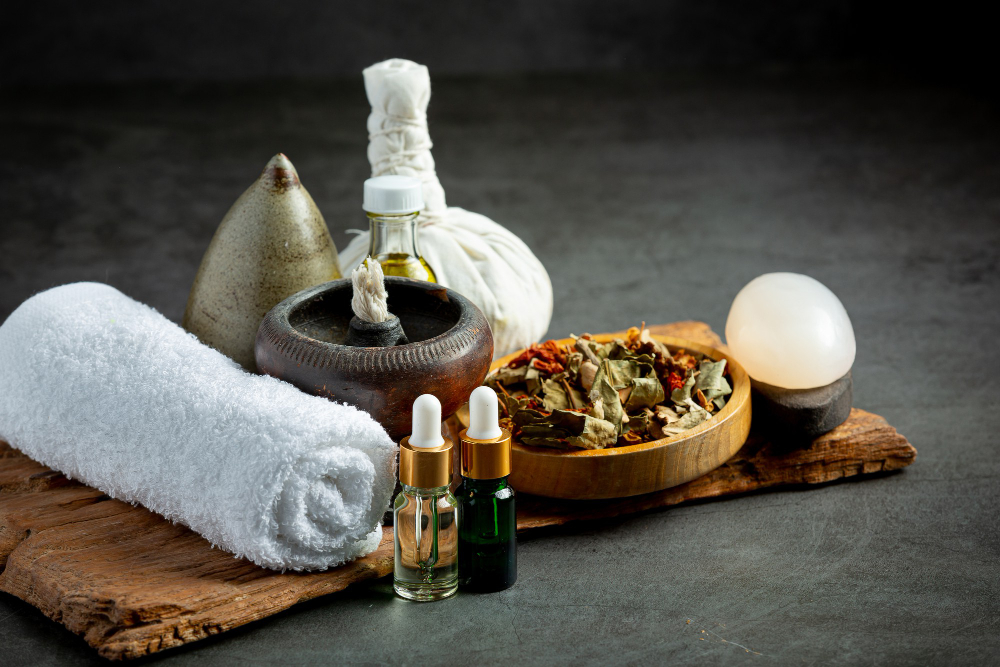
Tips on How to Find a Qualified Aromatherapy Professional
A qualified professional must be selected in order to undergo safe and effective treatment. These are some of the ways by which you can find the right person for the job:
- Qualifications and Training: First and foremost, check if they have formal training and accreditation in aromatherapy by leading institutions.
- Experience: Prefer someone who has experience in treating conditions relating to yours.
- Specialization: Many practitioners specialize in the kind of aromatherapy practiced; for instance, some do pain management, while others do emotional support. Find a practitioner whose specialty suits your needs.
- Consultation Approach: The practitioner should be able to offer a consultation in which he inquires into the patient’s history, general sensitivities, and aims of the treatment.
Integrating Aromatherapy with Conventional and Complementary Therapies
Aromatherapy is commonly integrated with other therapies for enhanced healing effects. It works well alongside:
- Massage Therapy: Adding essential oils to massage treatments can deepen relaxation and address specific ailments such as muscle tension or joint pain.
- Yoga and Meditation: Diffusing calming essential oils during yoga or meditation sessions can heighten emotional balance and mindfulness.
- Conventional Medicine: Aromatherapy is increasingly being used in clinical settings to support pain management, reduce anxiety before surgeries, and complement mental health treatments.
By combining aromatherapy with other therapies, individuals can enjoy more holistic and comprehensive health benefits.
Risks, Side Effects, and Precautions of Aromatherapy
While aromatherapy is generally safe, certain precautions must be taken to avoid potential side effects:
- Skin Irritation: Some essential oils like eucalyptus oil applied directly on the skin without dilution or blending may cause irritation or develop allergic contact dermatitis, especially in some people.
- Respiratory Problems: The internal use of essential oils in extremely strong concentration may lead to some people having breathing problems and in select patients who have asthma or some lung problems.
- Medication Interactions: Some of these can have an adverse reaction with medications such as those that thin the blood, for example, or calm patients, hence making them less effective when used.
- Pregnancy and Children: The use of certain essential oils is not advisable on pregnant women, nor on young children without seeking professional medical advice beforehand.
Having a knowledge of these risks is imperative and using essential oils for such a function with care is reasonable. Therefore everyone must know and understand how to safely carry out aromatherapy without causing any undue harm.
Step-by-Step Guide: What Happens During an Aromatherapy Session?
- Consultation: This usually entails some talk about your physical and emotional needs, health history, and desired treatment outcomes.
- Oil Selection: The therapist selects the essential oils based on your needs and objectives of the therapy. Application Techniques Include Inhalation: Inhaling the aromas through a nebulizer.
- Massage: Oils are first diluted in a ‘carrier’ oil before actual application through massage. Diffusion: Aroma diffused into the air via a nebulizer.
- Relaxation: The sweet smells invite relaxation and also can alleviate particular complaints, such as stress, pain, or anxiety.
- After the Treatment: The therapist may suggest some oils to be used at home, advising appropriate ones.
- Treatment Time: Normally 60-90 minutes.
How to Practice Aromatherapy at Home?
Practicing aromatherapy at home is easy and can transform your environment into a calming, healing space. Here’s how to do it:
- Diffusion: Use an essential oil diffuser to fill your home with soothing scents. Lavender, eucalyptus, and citrus oils are great choices for promoting relaxation or energy, depending on your needs.
- Topical Applications: You can create your own essential oil blends for skin care or massages by mixing a few drops of essential oil with a carrier oil.
Bathing: Add essential oils to your bath for a luxurious, therapeutic experience. Oils like rose or ylang-ylang are excellent for calming the mind and promoting emotional balance.
Empowering Yourself: How to Become a Practitioner of Aromatherapy?
Becoming a certified aromatherapy practitioner involves a combination of formal education and practical experience. Here’s how you can empower yourself to start a career in aromatherapy:
- Educational Courses: Look for accredited aromatherapy certification programs that cover essential oil chemistry, safety guidelines, and blending techniques.
- Hands-On Experience: During training, you’ll need to practice using essential oils in real-life scenarios, such as treating clients or creating therapeutic blends.
- Licensing and Certification: Depending on your location, you may need to obtain a license or professional certification to practice legally.
- Continuing Education: Stay updated with new research and techniques by attending workshops and advanced courses.
Creating a Community: Connecting with Others Who Practice Aromatherapy
Networking with other professionals in the field of aromatherapy contributes to building your expertise and opens up new avenues of growth. Here’s how you expand your network:
- Professional Associations: Make it a point to start working with organizations like the National Association for Holistic Aromatherapy, which will avail you of networking and professional resources.
- Attend Workshops and Conferences: Regular attendance at events in aromatherapy helps you meet other professionals in addition to keeping you apprised of current industry trends.
- Online Forums and Social Media: Enter online forums or closed groups in Facebook to discuss technique matters, raise questions, and share experiences with other practitioners.
Final Thoughts
Aromatherapy is a versatile practice that can be easily employed by anyone looking at their physical body, mental health, or both, hence being very beneficial; you can incorporate aromatherapy into your daily life for improved quality of health and living by understanding essential oils properties as well as uses. Whether you want to relieve stress, sleep better, or enhance your immunity through Aromatherapy, you will get a natural solution that works effectively for what you need.
Aromatherapy
Aromatherapy is a treatment in which natural plant extracts are used to promote health and well-being.
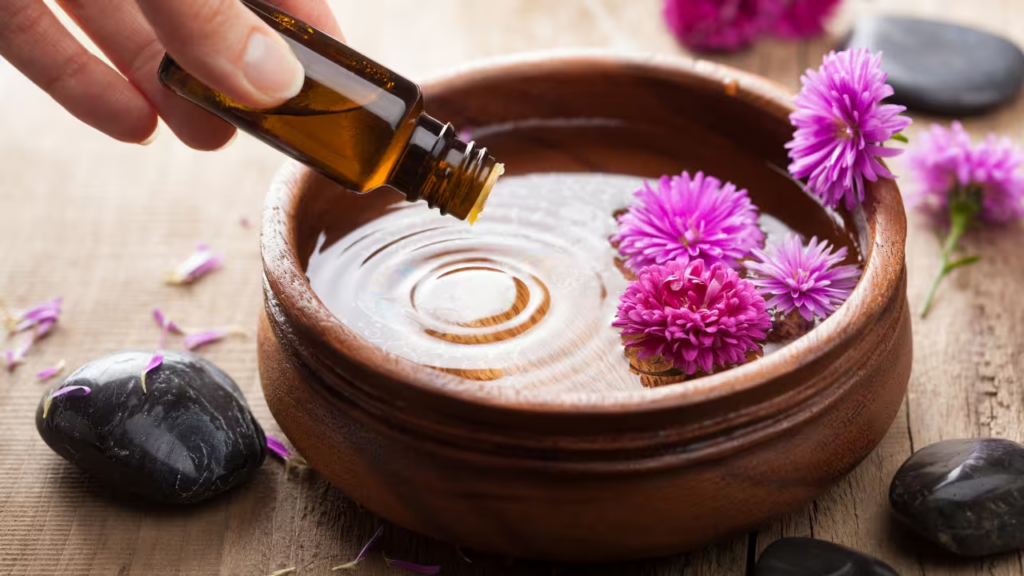
Life can be a buzz of activity, causing us to feel overwhelmed, exhausted, and in dire need of respite. That’s where aromatherapy comes in. Utilizing the healing power of natural aromatic extracts from plants, essential oils offer a soothing and rejuvenating method for rest and relaxation. This time around we are going to look into seven different types of essential oils that are famous for their ability to relieve stress and promote overall well-being.
What are the benefits of lavender essential oil?
The benefits of lavender essential oils are renowned for their calming effects, helping reduce anxiety and promote sleep. It also has antiseptic properties, aiding in wound healing and skin irritation relief. Its soothing aroma makes it popular for relaxation, and stress reduction, and as a sleep aid in aromatherapy practices.
Lavender is just versatile and, at the same time, often used during aromatherapy to bring about a feeling of peace and calmness. The antimicrobial effects of its properties help in treating minor burns, bites of insects, and irritations caused by skin problems.
Lavender can be said to even promote the quality of sleep by its diffusion before sleeping or application to pillows. It is widely used in personal care products since it has a smooth fragrance and is good for the skin. Its soothing odor, one that relieves stress and anxiety, is what makes it significant for holistic wellness practices.
How is tea tree essential oil used for health?
The tea tree essential oil is used for its antibacterial and antifungal properties in treating acne and skin infections. It can also act as a natural disinfectant. Known for its immunity-boosting properties, it is applied to skincare and cleaning products.
Tea tree oil is a very strong essential oil, which in most cases, can be used independently in a lot of natural remedies. The oil has some properties that are antibacterial; hence, it helps in the treatment of acne and reduces inflammation. Application on cuts or scrapped parts of the skin inhibits the process of infection. It’s a natural disinfectant, hence its use in many homemade cleaning solutions.
In addition to all these uses, tea tree oil can be diffused into the air to purify it and strengthen the immune system. This is a strong oil that can irritate if not properly diluted with a carrier oil, so use it with caution.
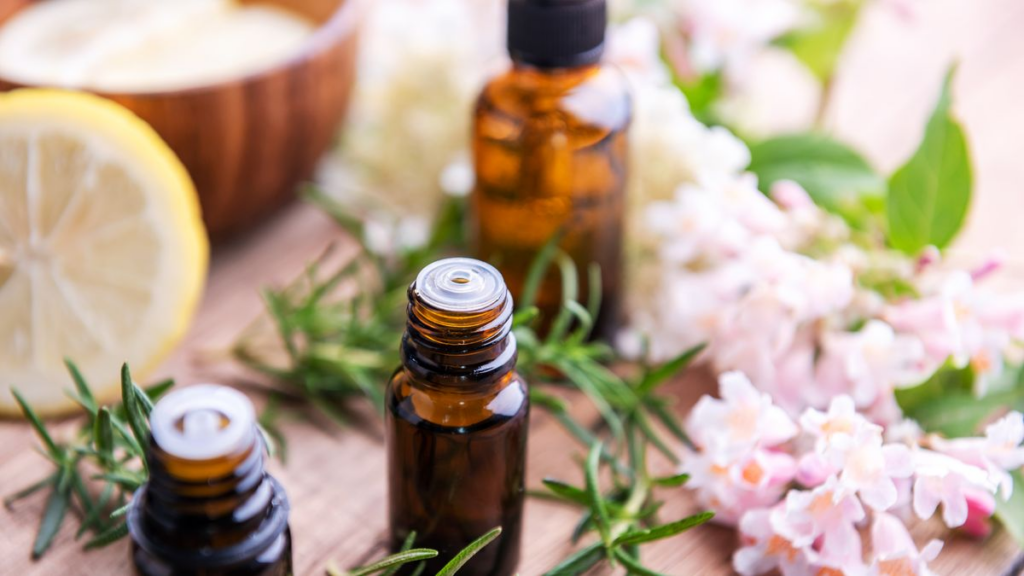
What are the therapeutic uses of eucalyptus essential oil?
Eucalyptus essential oil is commonly used for respiratory relief, helping alleviate symptoms of colds and congestion. Its anti-inflammatory properties aid in reducing muscle and joint pain. The invigorating scent also promotes mental clarity and alertness, making it a popular choice in aromatherapy and personal care products.
Eucalyptus oil is often used in inhalation therapies due to its properties for cleansing nasal passages and relieving breathing problems. It has anti-inflammatory properties, which are useful in massage oils to soothe straining muscles and joints.
A refreshing smell, eucalyptus oil is believed to rejuvenate the mind by enhancing concentration and focus. The oil is added to cough mixtures, throat lozenges, and salves for rubs on the chest, relieving cold discomfort. Its antibacterial properties make the oil useful in cleaning products and in personal hygiene items.
How can peppermint essential oil improve health?
Peppermint essential oil improves health with its cooling effect, providing relief from headaches and muscle pain. It aids digestion and reduces nausea. Its invigorating aroma helps enhance focus and energy. Commonly used in topical applications and inhalation, peppermint is versatile for both physical and mental well-being.
Massaging with this oil helps in combating headaches and migraines. It relieves muscle soreness and joint aches with its cooling effect. Peppermint oil acts as a digestive enzyme and helps reduce bloating, gas, and indigestion.
Its refreshing aroma enhances concentration and clearness of thought, making it very good for improving focus during work or study sessions. Moreover, peppermint oil revives the spirit and refreshes the senses as it is mixed into a diffuser. Since this oil irritates the skin, it has to be diluted with some carrier oil.
What are the benefits of lemon essential oil in aromatherapy?
Lemon essential oil is praised for its uplifting and cleansing properties. It boosts mood, reduces anxiety, and promotes concentration. Its antibacterial qualities make it useful in cleaning products. In aromatherapy, it’s used to invigorate and purify, providing a refreshing atmosphere that enhances mental clarity and energy.
Lemon oil is referred to as one of the most versatile essential oils. It displays its invigorating, bright, citrusy aroma, which uplifts one’s spirit and energizes the mind. It eases feelings of stress and anxiety while offering a cheerful mood.
Lemon oil is a booster of concentration and will always be useful in a workplace or study room. With its antibacterial properties, lemon oil makes for a great addition in any of your cleaning products. It also cleans the air, gives refreshing ambiance through diffusion. It is, therefore, phototoxic and should be applied to the skin with utmost care.
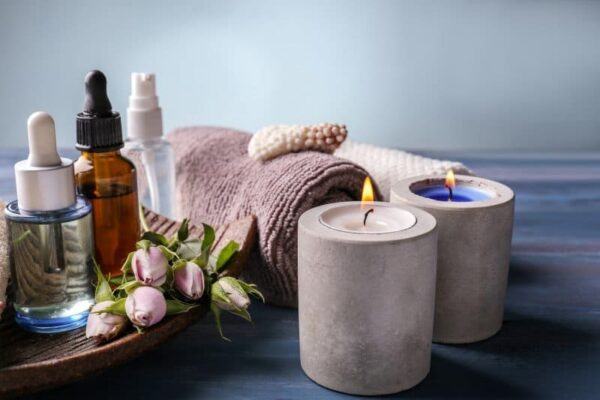
How is rosemary essential oil used for wellness?
Rosemary essential oil supports memory and concentration, making it popular for cognitive enhancement. Its anti-inflammatory properties aid in reducing muscle pain and improving circulation. Additionally, rosemary’s invigorating scent promotes mental alertness, and its antimicrobial benefits are used in hair care to promote scalp health and hair growth.
Rosemary oil is famous for improving cognitive functioning, which in turn gives improvement in memory. It often is used in aromatherapy to enhance focus and mental clarity. Rosemary oil is anti-inflammatory; as such, it relieves the pain of muscles and joints and improves circulation, thus providing relaxation.
In hair care, rosemary oil is believed to stimulate hair growth and reduce dandruff by promoting scalp health. It fights bacteria and fungi by possessing antimicrobial properties, hence giving this oil added value in soaps, lotions, and creams for personal care. Rosemary oil can be used by way of diffusion or topically by rubbing it onto the skin, but only when diluted.
What are the uses of chamomile essential oil?
Chamomile essential oil is used for its calming effects, helping reduce anxiety and promote sleep. Its anti-inflammatory properties soothe skin irritations and aid in digestive health. Chamomile’s gentle nature makes it ideal for use in skincare, relaxation therapies, and as a sleep aid for both adults and children.
Perhaps the primary application of chamomile oil is its involvement in inducing relaxation and improving the quality of sleep. It has a soothing aroma that eases the level of stress and anxiety, hence quite applicable for nighttime routines.
The anti-inflammatory and antioxidant properties of the oil make chamomile oil effective at soothing skin conditions such as eczema and dermatitis. It may also facilitate digestion by soothing the digestive tract, hence alleviating symptoms such as bloating and indigestion. Since it is so mild, chamomile oil can be used on children and is an excellent, safe home remedy for a multitude of issues.
Wrapping Up!
Essential oils have numerous applications when it comes to rest and revitalization. Whether you choose to relax in lavender’s gentle arms or bask in the earthly scents of cedarwood these extracts will undoubtedly promote overall health while fostering domestic tranquility. Remember to try different oils! Identify those that best resonate with your well-being and design an individualized aromatherapy plan that relaxes you like magic leaving behind pure rejuvenation at every level.
Reference
Aromatherapy
Aromatherapy is a treatment in which natural plant extracts are used to promote health and well-being.
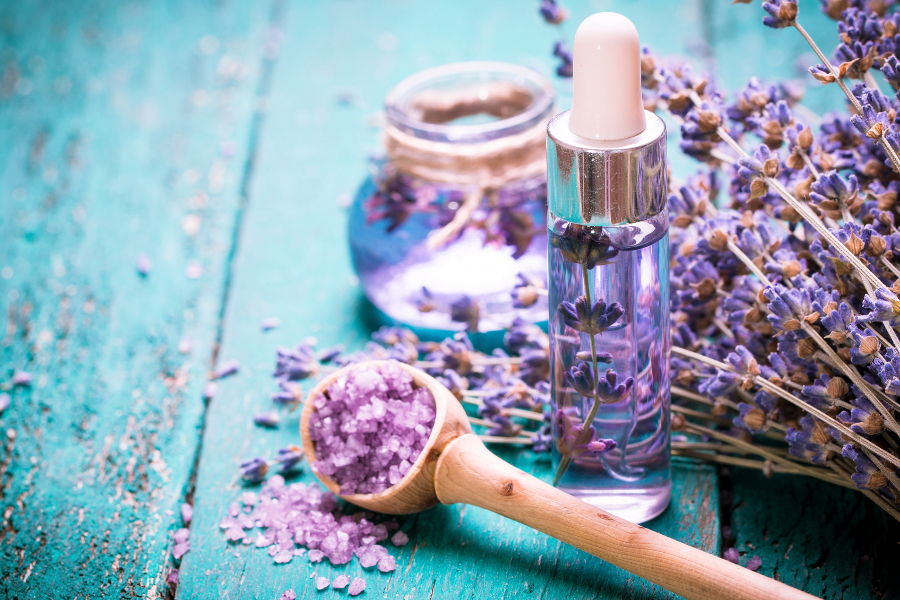
In this fast-paced world millions of people are affected by anxiety. There are various approaches to deal with the concern, one of them being aromatherapy. Thus healing modality has proved to be beneficial for many. Come learn about which therapy oils can help people manage stress and anxiety.
What Is The Science Behind Scent and Anxiety?
The science behind scent and anxiety involves the olfactory system’s impact on the limbic system, which regulates emotions and stress. Pleasant scents can stimulate brain areas associated with relaxation and mood enhancement, potentially reducing anxiety and promoting a sense of calm.
Our sense of smell comes from the olfactory system, which is closely linked to the limbic system in the brain. This system plays a crucial role in controlling emotions, memory, and behavior.
Once we breathe in certain smells through our noses, they send signals to our brains via olfactory receptors causing various emotional and physiological responses. As for anti-anxiety scents, they could result in increased production of neurotransmitters like serotonin and dopamine known for promoting calmness and well-being.
What scent calms people?
Scents that calm people typically include lavender, chamomile, sandalwood, and bergamot. These aromas can reduce stress and anxiety by interacting with the brain’s emotional centers, promoting relaxation and a sense of tranquility through their soothing and pleasant fragrances.
Lavender is probably the most well-known and extensively investigated scent in relation to relieving anxiety. Undeniably, its fame has been substantiated by numerous scientific studies which have shown its effectiveness in promoting relaxation and reducing stress.
The calming effect of Lavender may be attributed to two main compounds; linalyl acetate and linalool. These chemical components are known to interact with GABA (gamma-aminobutyric acid) receptors in the brain responsible for modulating stress responses and anxiety levels.
Including lavender essential oil into your anxiety-reducing routine could involve using it in a diffuser, adding some drops to your bath, or keeping a dried lavender sachet near your bed or work desk.
What to drink for stress and anxiety?
For stress and anxiety, drink herbal teas such as chamomile, peppermint, or lemon balm. These beverages have calming properties that can help relax the mind and body. Additionally, staying hydrated with water is essential for overall mental well-being.
Another scent whose ability to relieve anxiety and stress is highly recognized is Chamomile. The soft fragrance of this herb has been used throughout the centuries as traditional medicine for curing sleeping difficulties and soothing nerves.
The primary compound responsible for chamomile’s anxiolytic properties is apigenin. This flavonoid binds to certain brain receptors, producing a mild sedative effect that helps reduce restlessness and feelings of nervousness.
Chamomile alone can help relieve anxiety. Try using the essential oil in a diffuser or add a few drops to your warm compress as aromatherapy for calming down.
Why is Bergamot The Scented Uplifter?
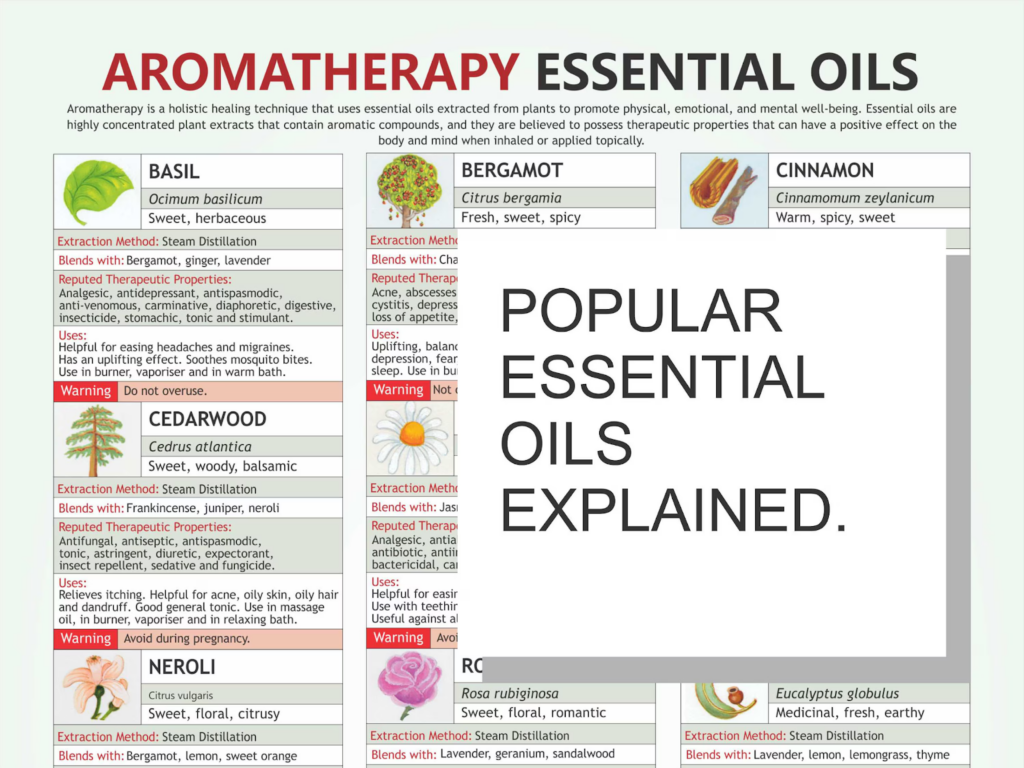
Bergamot is the scented uplifter because its citrusy aroma stimulates the brain’s mood-regulating centers, promoting feelings of happiness and reducing stress. Its uplifting scent can enhance mood, alleviate anxiety, and provide a sense of overall well-being.
Over time bergamot has emerged as one of the citrus fruits due to its potential to reduce anxiety. This aroma is commonly utilized in Earl Grey tea and many perfumes, but there are more benefits beyond its pleasant smell.
The calming properties of limonene and linalool present in high amounts within bergamot are thought to be responsible for its anti-anxiety effects.
Consider employing bergamot essential oil in your anxiety management program through a diffuser, add it to a carrier oil for massage, or simply inhale its scent directly from the bottle when you become anxious.
Why Is Ylang-Ylang The Tranquilizer?
Ylang-ylang is known as a tranquilizer because its floral, sweet scent has calming effects that help reduce stress and anxiety. It influences the brain’s emotional centers, promoting relaxation and emotional balance, making it effective for enhancing overall tranquility.
This aroma is famous for helping reduce blood pressure and slowing heart rate—perfect for people suffering from panic attacks. Ylang-ylang has a sweet, floral scent that is commonly utilized in aromatherapy as a means of calming anxiety.
The research found that ylang-ylang essential oil could effectively reduce stress and anxiety among postmenopausal women. In another study ylang-ylang, aromatherapy significantly decreased anxiety levels and boosted self-esteem among healthy adults.
This makes it an ideal choice for people who have physical symptoms of anxiety. This fragrance has been shown to decrease blood pressure and heart rate.
The principal constituents of ylang-ylang are believed to be linalool, geranyl acetate, and benzyl acetate, which may be responsible for its sedative effect.
What scent calms anger?
Scents like lavender, chamomile, and sandalwood are effective at calming anger. These fragrances have soothing properties that help reduce stress and tension, promoting relaxation and emotional balance, which can help manage and alleviate feelings of anger.
Different scents such as chamomile, lavender, sandalwood, and chamomile can calm anger due to their soothing, therapeutic properties. Lavender can help ease the stress and induce relaxation.
Chamomile is very gentle and can promote emotional balance. Sandalwood, a grounding scent, can enhance a feeling of tranquility. These fragrances together can reduce feelings of anger.
Their combined effects can foster a serene emotional state in an angry person.
What is the 3-3-3 rule for anxiety?
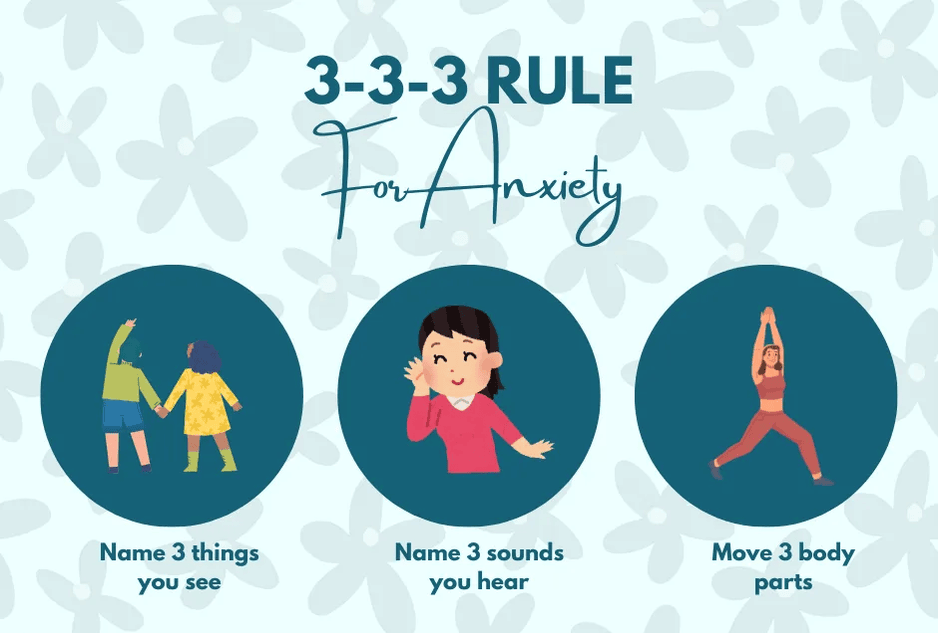
The 3-3-3 rule for anxiety involves identifying and naming three things you can see, three things you can hear, and three things you can touch. This technique helps ground you in the present moment and reduce anxiety.
Grounding technique known as the 3-3-3 rule, which is an effective therapy for anxiety attacks. It involves finding three things that you can see, hearing three sounds and consciously moving three parts of your body.
By tethering our minds to the present moment, this simple method helps divert our attention from worrying thoughts. It breaks the vicious cycle of anxiety by involving your senses and physical being thus reducing worry while instilling some sense of control and calmness as it promotes peace of mind.
What foods can calm anxiety?
Foods that can calm anxiety include fatty fish (like salmon), nuts, seeds, dark chocolate, berries, and leafy greens. These foods contain nutrients like omega-3s, magnesium, and antioxidants, which support brain health and help reduce stress and anxiety.
Salmon is a type of fatty fish that is rich in omega-3 fatty acids necessary for brain health and mood regulation. Magnesium and healthy fats are contained in nuts/seeds which aid in stress reduction.
Dark chocolate has antioxidants and certain compounds that facilitate relaxation. Berries have high levels of antioxidants that will mitigate inflammation caused by stress, while leafy greens provide essential vitamins and minerals for mental well-being.
These nutrient-dense foods can be incorporated into one’s diet so as to effectively manage anxiety and improve overall wellness.
Conclusion:
Although no single fragrance may cure all anxiety disorders, aromatherapy still offers great benefits for stress management and relaxation purposes. Lavender, chamomile, bergamot, ylang-ylang, and frankincense are all good ways to reduce anxiety. Test these scents alone or in combination to find what suits you best and make them part of your everyday life for a calmer and well-adjusted existence.
References
Aromatherapy
Aromatherapy is a treatment in which natural plant extracts are used to promote health and well-being.
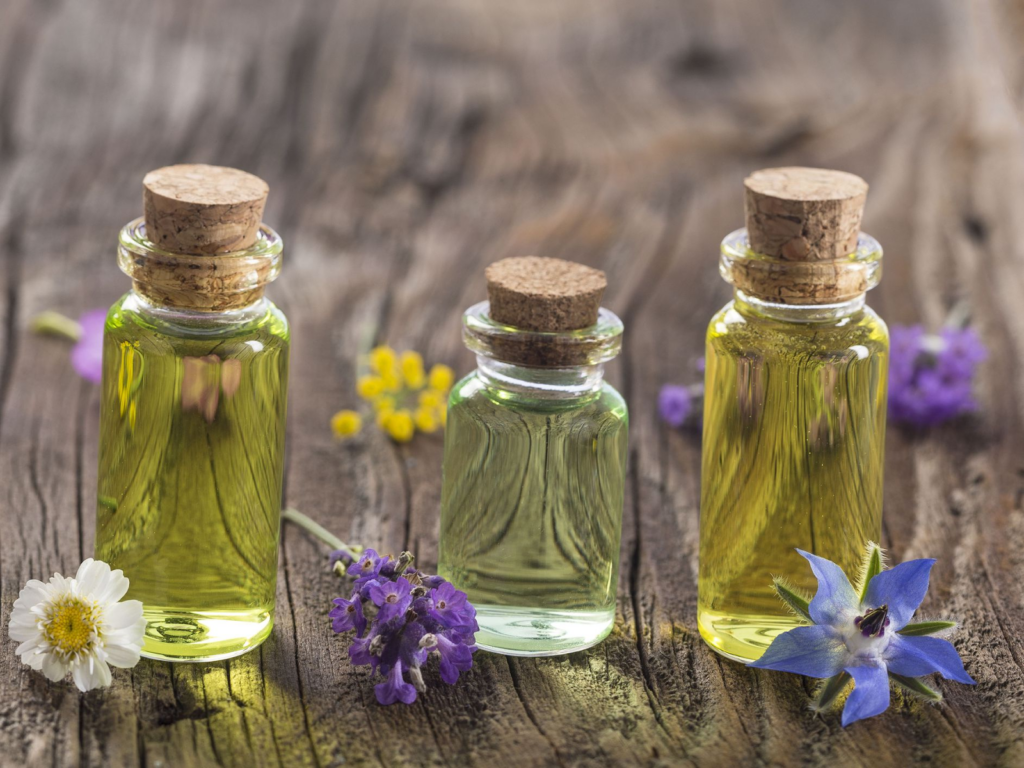
Aromatherapy has become very popular for treating anxiety in a gentle but effective way. With knowledge of how to use essential oils strategically, one can tap into their full potential for mental health. This manual gives insight into the best practices of applying these substances so as to achieve maximum therapeutic benefit, thus giving an easy and all-round approach to improving emotional well-being through natural smells.
What are the best essential oils for anxiety?
Essential oils like lavender, chamomile, and bergamot are excellent for anxiety.
Of the known essential oils, lavender, chamomile, and bergamot are very efficient in controlling anxiety. Lavender oil relaxes and soothes the nervous system, reducing general stress. Chamomile oil has soothing properties that make one relaxed and, therefore, relieve tension. Bergamot oil enhances mood, which will raise the spirit. Individual usage or blends of the mentioned oils will, therefore, accord complete relief from anxiety. They can be diffused into the air or applied when diluted to attain relaxation or added to a bath for that calming experience.
How does lavender oil help with anxiety?
Lavender oil helps with anxiety by calming the nervous system and reducing stress.
Since lavender oil has calming properties, it can alleviate the stress of anxiety. It does this through interaction with the limbic system in the brain, the seat of emotions. The smell of lavender may cause relaxation by increasing heartbeat and blood pressure, thus slowing down a fast-beating heart or high blood pressure. Through inhalation or topical use, the reduction of symptoms of anxiety makes lavender oil preferable over other herbal extracts for relieving stress and causing relaxation.
Can chamomile oil be used for anxiety relief?
Yes, chamomile oil can be used for anxiety relief.
Chamomile oil is an excellent choice for alleviating anxiety. The oil contains a perfect blend of calming and stress-reducing properties to alleviate tension. It works right from the nervous system, helping the user to relax and alleviate some feelings of uptight. Application techniques include air diffusion, adding a few drops into a warm bath, or applying topically with the help of a carrier oil. It is a gentle oil, making it appropriate to use regularly in improving emotional well-being and relaxation.
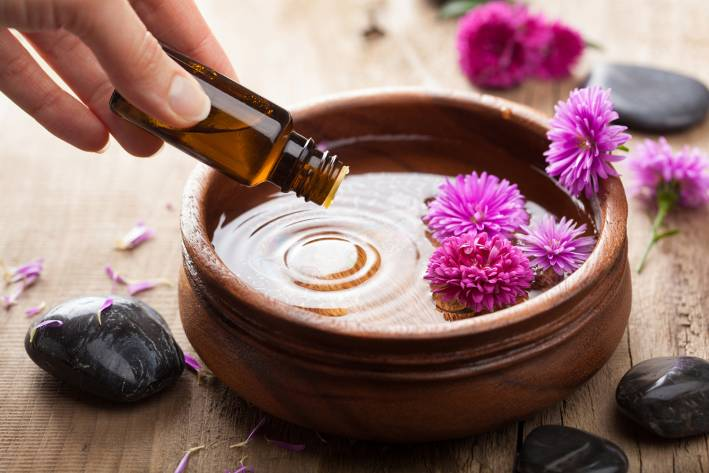
How does bergamot oil reduce anxiety?
Bergamot oil reduces anxiety by uplifting mood and relieving stress.
Bergamot oil has the ability to reduce anxiety by improving mood and decreasing the level of stress due to its refreshing smell. The bergamot aroma triggers activity in neurotransmitters within the brain that produce effects in mood improvement and reduction of anxiety. In the end, bergamot oil indirectly brings about a soothing effect whenever it is used in a diffuser or applied on the body to attain emotional balance, for its mood enhancement properties make it quite a powerful tool against anxiety.
How often should essential oils be used for anxiety?
Essential oils can be used for anxiety daily or as needed.
Daily applications or as-needed can be done to relieve anxiety best of all. Essential oils work toward emotional balance if used during a daily routine, such as diffusing in the morning or application at moments of stress. How often to use them depends on individual needs and different reactions people have. Continuous usage tends to help hold symptoms under good control, though one may need to make adjustments according to personal experience and anxiety levels.
Are there any side effects of using essential oils for anxiety?
Essential oils are generally safe but can cause allergic reactions or skin irritation in some individuals.
While generally safe, essential oils can sometimes trigger allergies or skin irritation. It is always important to conduct a patch test before using any essential oil topically and to use the oils in diluted forms. One has to choose high-quality pure essential oils, which will reduce the risks. Those with existing health conditions or sensitivities should make sure to consult a healthcare provider prior to using any of the essential oils for safety and to avoid possible side effects.
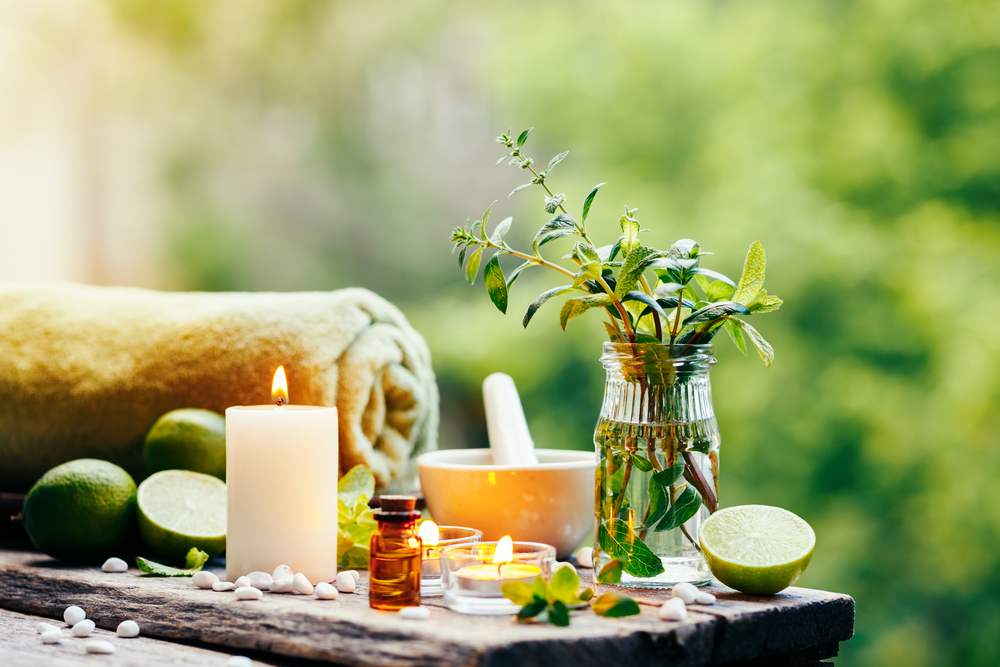
Can essential oils be combined for anxiety relief?
Yes, essential oils can be combined for enhanced anxiety relief.
Blended oils can have an amplified effect for anxiety relief. A blend of essential oils, for instance, lavender, chamomile, and bergamot, creates a synergistic effect that offers greater efficacy. For example, lavender and chamomile combination serves to pacify and soothe; the addition of bergamot adds the element of mood enhancement. Blends like these could be used in diffusers, bathwater, or topically applied to maximize the alleviation of anxiety and induce relaxation.
How do essential oils interact with anxiety medication?
Essential oils may interact with anxiety medication, potentially affecting their efficacy.
Some of the essential oils can interact with the medications for anxiety, hence reducing their effectiveness. Some oils may affect metabolism or absorption rates of the medication, thus changing their effects. You should consult your doctor before using essential oils if you are under medication for anxiety. This precaution allows there to be no adverse interactions and the two treatments will harmoniously work together in managing anxiety.
What are the most effective methods for applying essential oils for anxiety?
Effective methods for applying essential oils for anxiety include using a diffuser, applying diluted oils topically, or adding them to a bath.
The modes through which essential oils can best be utilized to help in cutting down anxiety include diffusion, topical application, and bathing. Diffusion frees the aroma to spread relaxation into the air. Topical application, upon dilution with some carrier oil, provides a means for the oils to make contact with the skin, hence a direct absorption route. Using them in a bath gives a thorough, whole-body relaxative experience. All methods, therefore, have different benefits and may be used based on personal preferences and needs.
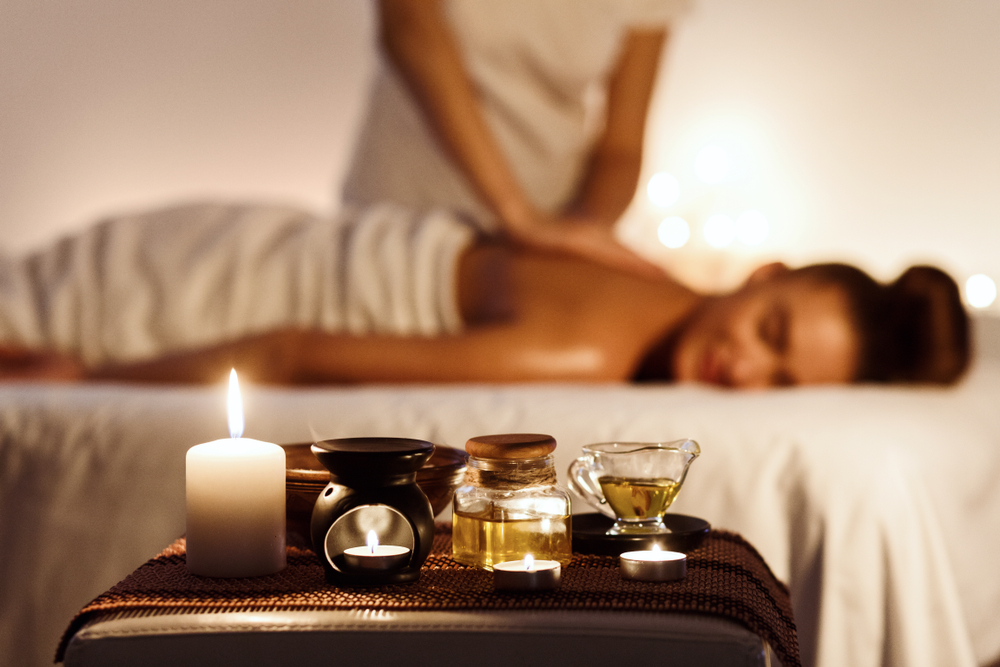
How does aromatherapy compare to other anxiety treatments?
Aromatherapy offers a natural complement to other anxiety treatments like therapy and medication.
In such a way, aromatherapy supports other forms of anxiety treatment, like therapy and medication. It can alleviate symptoms through the sense of smell and support, but does not replace professional medical treatment. The integration of aromatherapy with conventional treatment methods could bring about an improvement in the general effect of treatment and strengthen emotional well-being.
Can essential oils be used in children for anxiety?
Essential oils can be used in children for anxiety, but it’s important to use them cautiously and in diluted forms.
Essential oils can be used in children for managing anxiety, but caution is necessary. Essential oils should be used in diluted forms to prevent skin irritation and adverse reactions. Consult a pediatrician to ensure safety and appropriateness. Gentle oils like lavender and chamomile are typically recommended for children, as they are known for their mild and calming properties.
Conclusion
To sum up, essential oils can help relieve anxiety naturally through their calming effects. It would be prudent to try out different types of oil together with application methods during this process until you find what works best for yourself. Allow yourself some peace by embracing various scents within aromatherapy hence discovering personal serenity track.
Aromatherapy
Aromatherapy is a treatment in which natural plant extracts are used to promote health and well-being.

Aromatherapy restfulness from lavender, energy boost from peppermint, relaxation in a bottle (or diffuser). Pause for a moment! There are several things you should think about before starting that collection of essential oils. While it can greatly improve your well-being, aromatherapy does not work the same for everyone. Therefore, let us begin and make sure you have a safe and fun journey into the world of fragrances!
Are there any medical conditions that contraindicate aromatherapy?
Yes, people with epilepsy, asthma, or severe allergies should exercise caution with aromatherapy. Certain oils may trigger seizures, respiratory issues, or allergic reactions.
Consulting a health professional is recommended before use. Aromatherapists can offer safe practice guidelines and suitable alternatives for these conditions. Some essential oils, like eucalyptus or rosemary, may include elements that can provoke seizures in people suffering from epilepsy.
For people with asthma, strong smells can provoke breathing difficulties. Some oils, when applied to the skin, can provoke irritations or aggravate allergic reactions in cases of serious allergies. Consulting a doctor or an experienced aromatherapist ensures appropriate and safe application of aromatherapy techniques, targeting individual health conditions and avoiding potential dangers.
Is aromatherapy safe during pregnancy?
Aromatherapy during pregnancy is safe. However, pregnant women should avoid certain essential oils like rosemary, clary sage, and juniper, which may stimulate contractions or affect hormone levels.
It is always best to consult your health provider prior to taking up any kind of therapy. Safe alternatives may be offered by a healthcare professional, and proper dilution can minimize the risk factors for lovely relaxation without side effects. Hormonal changes during pregnancy heighten the body’s sensitivity to some compounds found in oils.
Some, like rosemary, may stimulate uterine contractions and increase the risk of miscarriage, especially in the first trimester. By contrast, some oils, like lavender or chamomile, could be safely used to cause relaxation and mitigate stress if properly advised.
Consulting health providers on the proper choice and usage of these oils can help extract their benefits while minimizing associated risks. Tailored advice is essential to navigate the complexities of aromatherapy during pregnancy.
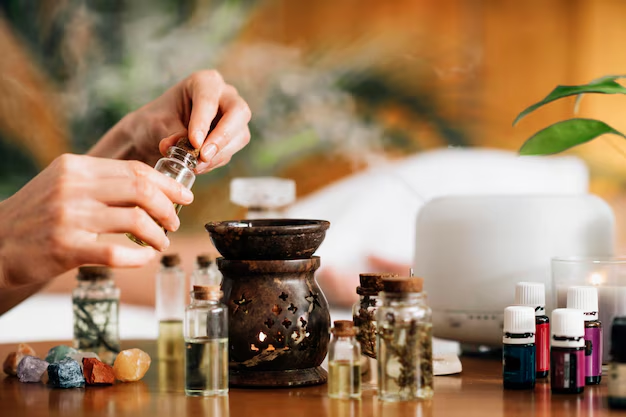
Is Aromatherapy Safe for Children?
Aromatherapy can be safe for children with appropriate precautions. Diluted essential oils like lavender or chamomile are generally safe. However, some oils can irritate the skin or respiratory system.
Children can use aromatherapy safely by consulting a pediatrician and using child-friendly products that are formulated with children’s sensitivities taken into consideration. Children have very sensitive skin and young, developing respiratory systems that call for heedful applications of essential oils. The proper dilution ratio for children is usually more reduced compared with adults, in order not to irritate.
Oils good for adults, such as peppermint and eucalyptus, can both create respiratory problems in young children. Child-friendly diffusers and products designed for pediatrics are safe for their use. Parents should always check with a doctor or a professional aromatherapist about the oil and techniques that are going to be used to provide peace of mind in using aromatherapy on children and effective treatments.
Should people with allergies avoid aromatherapy?
People with allergies should approach aromatherapy cautiously, as some oils may trigger reactions. Patch testing on a small skin area before use can help identify sensitivities. Consulting an allergist or aromatherapist can guide safe oil selection, reducing the risk of adverse reactions.
Essential oils have volatile compounds that may increase allergies. Those with known sensitivities should perform a patch test. It means that a small amount of diluted oil is applied onto the skin and observed for a period of 24 hours for any reactions. Some oils, especially citrus or even tea tree, can be quite irritating or cause allergy.
Consulting a health professional can help in ensuring people with allergies may also have fun safely by identifying the kind of oils which do not irritate their skin, then the mode of applications. Customized advice is given in order to avoid ill effects and benefit greatly from aroma.
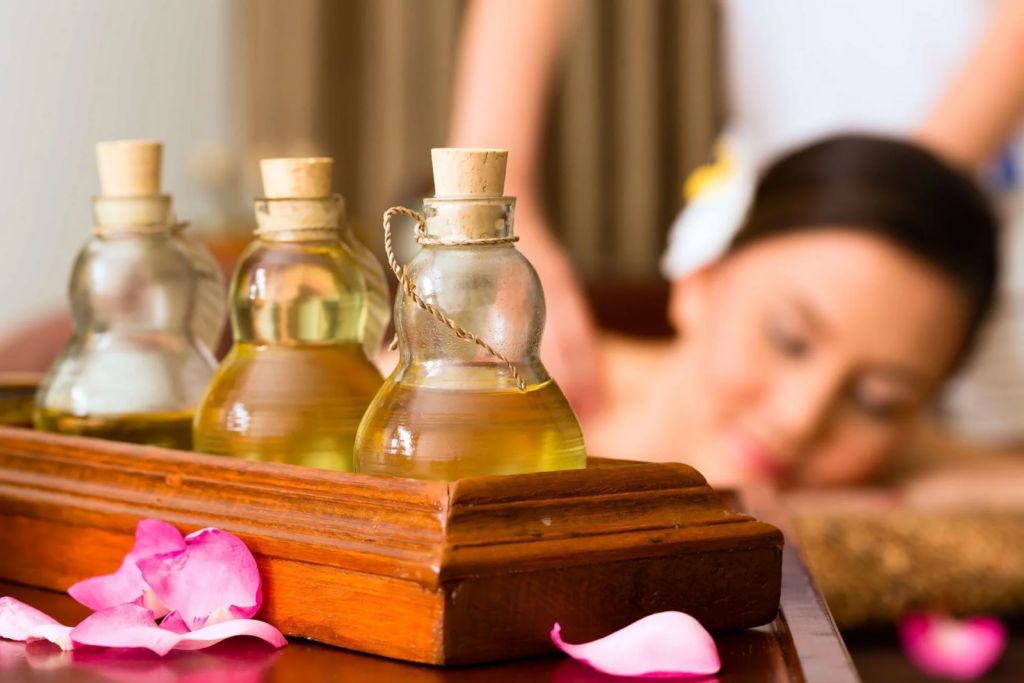
Are there risks of aromatherapy for people with sensitive skin?
Individuals with sensitive skin may experience irritation from essential oils, especially if undiluted. Using a carrier oil and testing on a small area can prevent adverse reactions. Choosing oils known for gentle properties, like lavender or chamomile, can minimize irritation risks for sensitive skin.
Sensitive skin is prone to reactions, so diluting essential oils with a carrier oil is essential. Carrier oils like coconut or jojoba oil help reduce the concentration of essential oils, minimizing irritation. Patch testing before the full application can identify any adverse effects.
Essential oils with known soothing properties, such as chamomile or sandalwood, are often recommended for sensitive skin. Consulting with aromatherapists or dermatologists ensures proper oil selection and application, promoting safe and effective aromatherapy practices for those with delicate skin.
Can aromatherapy affect people with respiratory issues?
People with respiratory issues, such as asthma, should use aromatherapy cautiously. Inhaling certain essential oils may aggravate symptoms. Consulting a healthcare provider and avoiding strong oils like eucalyptus or peppermint can prevent respiratory irritation, ensuring safe aromatherapy use.
The pungent smell of some oils may trigger respiratory problems or asthma attacks. Eucalyptus and peppermint are decongestants, but they can really inflame sensitive passages in the airways. Such methods include the use of milder oils and direct inhalation.
The healthcare professional may also offer advice on special precautions appropriate to the exact nature of the respiratory condition. Awareness of potential specific adverse reactions and adjustment of the application of the oils will ensure a safe and effective application of aromatherapy in clients with any form of respiratory disorder.
Are there any risks of aromatherapy for pets?
Aromatherapy can be harmful to pets, as animals are more sensitive to essential oils. Some oils, like tea tree and citrus, are toxic to pets. Using pet-safe oils in a well-ventilated area and consulting a veterinarian ensures their safety and well-being.
On the issue of metabolism, ASPCA (American Society for the Prevention of Cruelty to Animals) states that pets metabolize essential oils much differently than humans do. They, therefore, have an increased potential for the development of toxicity. Cats especially lack liver enzymes necessary for processing specific compounds existing in essential oils.
Oils like tea tree or citrus can induce vomiting, lethargy, or respiratory distress. Prior to using aromatherapy with pets, make sure to consult a veterinarian. Proper use of pet-safe oils, diffusion in well-ventilated areas, and limited application are risks one can take towards a safe coexistence between aromatherapy and pet health.
Practice Safe Aromatherapy
Aromatherapy can do wonders for you! But not everybody feels the same way; if there are underlying health conditions, pregnancy or young children involved consult a healthcare professional first. Safety should always come first, dilute properly according to instructions from reputable brands and begin with small amounts until you know how it affects you personally. Follow those rules so that aromatherapy benefits can be enjoyed without worry.
References
Aromatherapy
Aromatherapy is a treatment in which natural plant extracts are used to promote health and well-being.

The method of treatment with essential oils is called Aromatherapy. Many people love it, but it is very important to note that not everybody can use aromatherapy. So, come learn about the different groups of people who should be careful or avoid aromatic therapy altogether.
What Are The Possible Dangers of Aromatherapy?
Possible dangers of aromatherapy include allergic reactions, skin irritation, or sensitivity to essential oils. Overuse can cause adverse effects, such as headaches or nausea. Essential oils may also interact with medications, so caution and consultation with a healthcare provider are advised.
Aromatherapy is a practice that involves using concentrated plant oils called essential oils for both physical and emotional wellness. These oils may be breathed in, applied topically, or used in diffusers. Although generally safe some people should avoid it to ensure safety.
Pregnant women have to be more careful about what they eat and apply to their skin. Pregnant women need to take extra care when using aromatherapy.
A few types of essential oils are known to stimulate labor contractions or change levels of hormones, thereby endangering pregnancy. These include: Basil, Cinnamon, Clary sage, Jasmine, Juniper berry, and Rosemary
Although there are some essential oils that are believed to be safe during pregnancy, all expectant mothers should consult their healthcare provider before using any aromatherapy products.
Why Should Those with Allergies or Asthma Be Careful?
Those with allergies or asthma should be cautious with aromatherapy, as essential oils can trigger allergic reactions or exacerbate respiratory issues. Proper dilution and avoiding strong scents are crucial, and consulting a healthcare professional before use is recommended.
Strong scents and chemicals present in aromatic substances may affect individuals who have allergies or asthma. Inhaling specific oil might cause allergic reactions or suffer from asthmatic attacks.
These include Eucalyptus, Tea tree, Lavender, Peppermint. Always go for top- quality aromatherapy oils.
Try doing a patch test in small amounts at first. It’s always good to have your rescue inhaler around in case of adverse reactions.
Should People With Sensitive Skin Use Aromatherapy?
People with sensitive skin should use aromatherapy cautiously, as essential oils can cause irritation or allergic reactions. Always dilute oils properly, perform a patch test before full use, and choose gentle, skin-friendly oils. Consulting a healthcare professional is advised.
Those who have sensitive skin or conditions such as eczema and psoriasis should be careful when using aromatherapy products, especially if they are applied directly to the skin. Essential oils can irritate the skin, leading to redness, itching, and burning sensations.
Follow the dilution guidelines to mix the essential oil with a carrier oil. First, go for a patch test. Avoid Citrus oils that increase photosensitivity. Hydrosols can be used to replace essential oils.
What Should People With Some Medical Conditions Do?
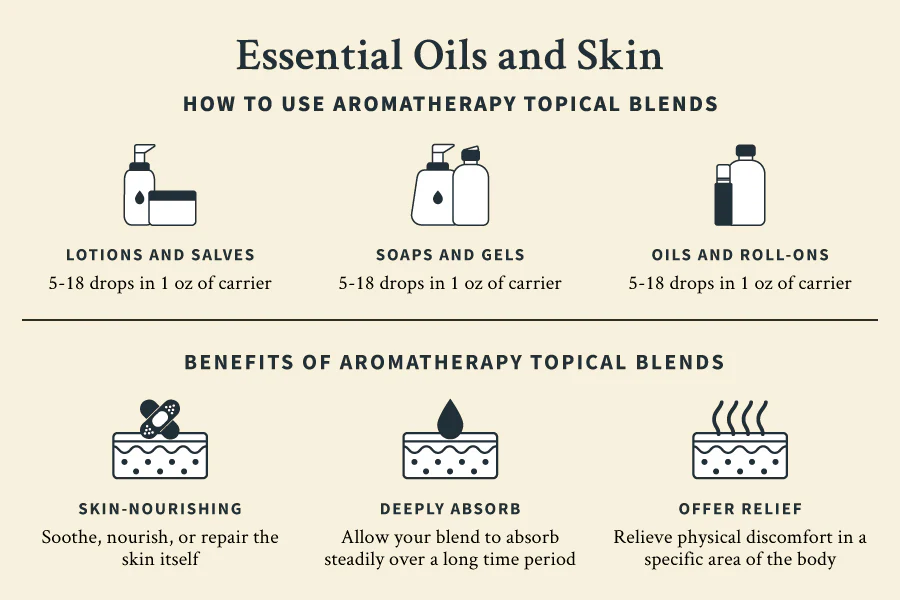
People with medical conditions should consult their healthcare provider before using aromatherapy. Essential oils may interact with medications or exacerbate conditions. Proper guidance ensures safe use, considering individual health needs and potential contraindications for specific oils or treatments.
Some medical conditions make aromatherapy risky. Epileptic patients may experience seizures from particular types of oils like rosemary and fennel. Rosemary, along with time, can raise blood pressure.
Oils with estrogenic properties such as c;ary sage and fennel should be avoided.Essential oils may put too much pressure on these organs, affecting their functions. Those with medical conditions should definitely be more cautious.
Is aromatherapy good or bad for you?
Aromatherapy can be beneficial by promoting relaxation, reducing stress, and improving mood. However, it may cause adverse effects for some, such as allergic reactions or interactions with medications. Its safety and effectiveness depend on individual health conditions and proper use.
Aromatherapy is advantageous as it induces relaxation, enhances mood, and treats a number of illnesses. However, for people who are sensitive to this kind of treatment, the therapy can lead to allergic reactions or irritations. In case of any underlying medical condition, kindly see a doctor and ensure you use pure essential oils.
So if aromatherapy is good or bad for you completely depends on your individual health. Alternative healing methods like this might not suit everybody and might take some time to work.
When you choose Aromatherapy for treatment, do set realistic expectations.
What are some side effects of aromatherapy?
Side effects of aromatherapy may include skin irritation, allergic reactions, headaches, nausea, or respiratory issues. Overuse or improper application of essential oils can exacerbate these effects, so it’s important to use oils as directed and consult a healthcare provider if needed.
Some common side effects include skin irritation, allergy, and respiratory problems if not inhaled properly. Few essential oils can result in photosensitivity, hence making the skin prone to burns when exposed to sunlight. It is important for the oil to be diluted correctly.
In case of excessive side-effects do consult aromatherapy experts. They can guide you on how to deal with the side- effects. Always use top-quality essential oils for your therapy. You can use it on your skin or through a diffuser.
What are the 12 must-have essential oils?
The 12 must-have essential oils include lavender, peppermint, tea tree, eucalyptus, lemon, rosemary, frankincense, chamomile, bergamot, ylang-ylang, geranium, and sandalwood. These oils are versatile, offering benefits for relaxation, respiratory health, and skin care.
Lavender, peppermint, eucalyptus, tea tree oil, lemon juice, frankincense oil, rosemary oil, chamomile clary sage, ylang-ylang, bergamot, and ginger form the twelve most important essential oils. They have various properties such as relaxation, pain relief, antibacterial and anti-inflammatory properties, etc.
These essential oils have different purposes. Some can enhance your physical health. While some work for your mental health. Be careful while using essential oils to avoid any side effects.
Consult healthcare experts in case of any doubt or confusion.
Can you put essential oils on your private parts?
No, essential oils should not be applied directly to private parts due to the risk of irritation or adverse reactions. Always dilute essential oils with a carrier oil and avoid sensitive areas. Consult a healthcare professional for safe application guidelines.
Applying undiluted essential oils directly on the genitals is generally not advised because it may cause irritation due to sensitivity. Use highly diluted lavender for example or other very mild oils whenever necessary while ensuring that you do a patch test first.
Private parts must be looked after with gentle care. So be careful even when you are using diluted forms of the essential oils. Consult healthcare experts to avoid any side effects on your private part.
Is tea tree oil toxic if inhaled?
Tea tree oil is generally safe when used in moderation and properly diluted. However, inhaling concentrated amounts can cause respiratory irritation or adverse effects. Always use tea tree oil in well-ventilated areas and consult a healthcare professional if concerns arise.
Inhaling large amounts of tea- tree oil can be truly dangerous and can often lead to respiratory issues. It leads to symptoms such as dizziness, breathing issues and headaches.
To reduce risks use tea-tree oil in moderation and in well-ventilated areas while inhaling vapors. Always follow the safety guidelines, dilute the oil properly and limit exposure to avoid adverse effects.
In case you do experience any discomfort, discontinue the aromatherapy immediately abd consult healthcare professionals for guidance.
What is the best oil for women's private areas?
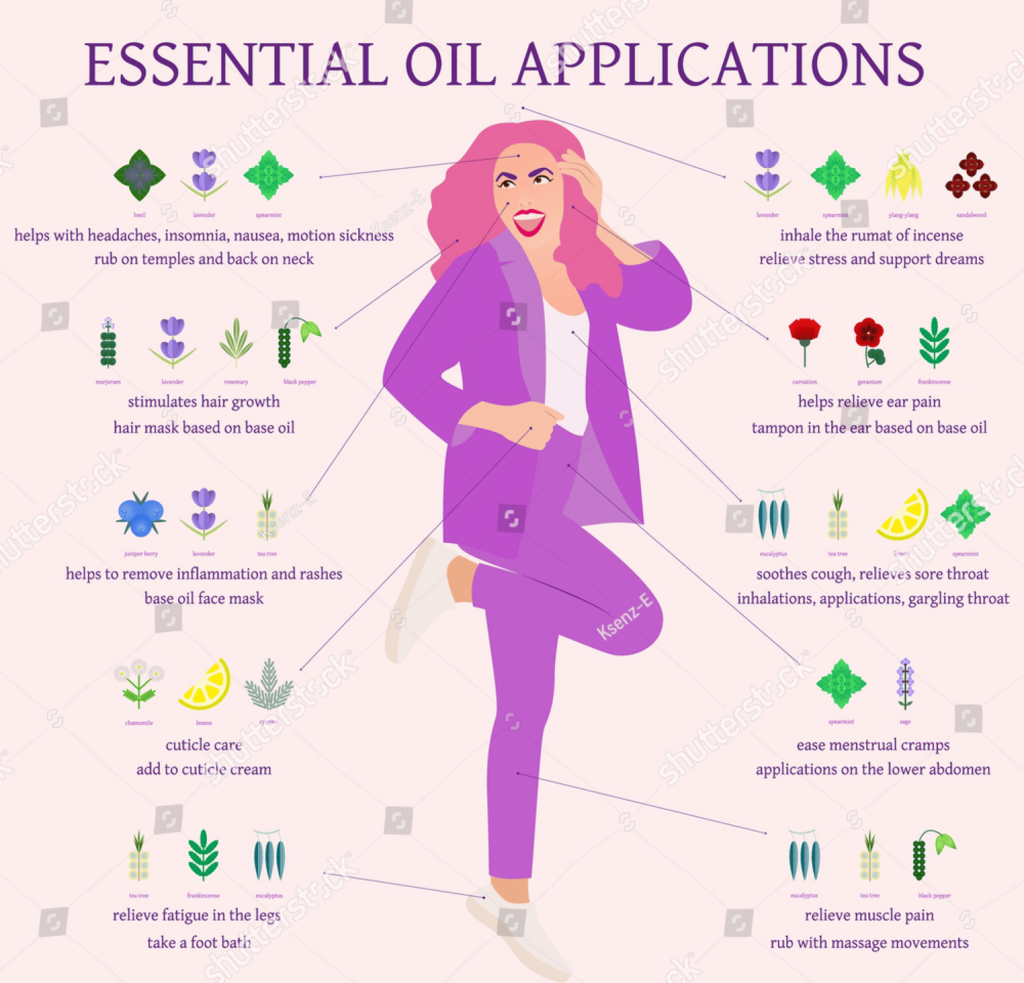
The best oils for women’s private areas are gentle, non-irritating options like coconut oil or almond oil. These oils are hydrating and soothing, but always perform a patch test first and consult a healthcare provider to ensure safety and suitability.
Many people suggest using coconut oil as it is a natural moisturizer and has antifungal properties. Additionally, see that the oil is organic and unprocessed. Avoiding essential oils in these sensitive areas without dilution.
Coconut oil can actually be very beneficial for women’s private parts. You can also use almond oil. These oils will hydrate your private parts. Do talk with a healthcare expert to avoid any side-effects.
How do I keep my private parts clean and smell good?
To keep private parts clean and fresh, wash with mild, unscented soap and water daily, and ensure thorough rinsing. Wear breathable, cotton underwear and avoid douches or harsh products. Maintain good hygiene practices and stay hydrated for overall freshness.
Hygiene must be maintained by washing with mild, unscented soaps and water and wearing breathable cotton underwear. Also, avoid douching or using scented products. Maintaining hydration levels through a balanced diet also helps to regulate pH balance.
Maintaining cleanliness of private parts is necessary to maintain overall well-being.
Are there any negative effects of aromatherapy?
Yes, aromatherapy can have negative effects, including skin irritation, allergic reactions, headaches, or respiratory issues. Overuse or improper application of essential oils can exacerbate these problems. It’s important to use oils correctly and consult a healthcare provider if concerns arise.
Some of the side- effects of aromatherapy include allergic reactions, skin irritations, headaches, respiratory problems, etc. Excessive use of essential oils may cause side effects.
Always be more careful if you suffer from specific health conditions or take certain medications. In case of extreme side-effects do visit a health expert immediately. Use the essential oils very carefully.
Lavender, peppermint, eucalyptus, tea tree oil, lemon juice, frankincense oil, rosemary oil, chamomile clary sage, ylang-ylang bergamot ginger form the twelve most important essential oils . They have various properties such as relaxation, pain relief, antibacterial and anti-inflammatory properties, etc.
Conclusion
Aromatherapy has many advantages but it might not be advisable for everyone. To be on the safe side it is important for pregnant women, young children and individuals with certain medical conditions or allergies to exercise caution. Seek advice from your healthcare provider on whether you should take up aromatherapy in your wellness program.
References
Aromatherapy
Aromatherapy is a treatment in which natural plant extracts are used to promote health and well-being.
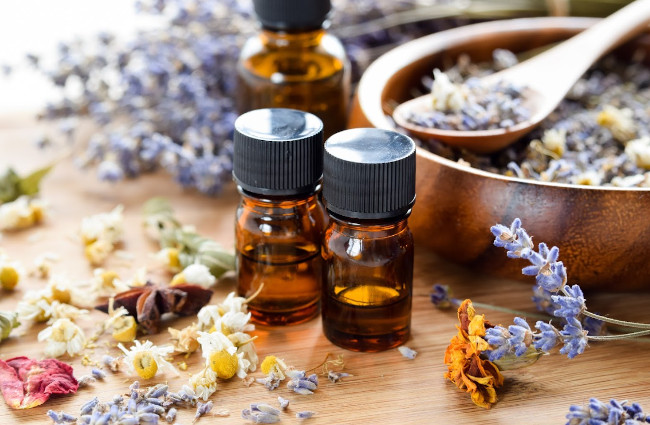
Aromatherapy is an old practice that uses essential oils from plants to improve mental health. This blog post explores how well it works in reducing stress and anxiety, which serves as a bridge between conventional and modern healing methods. Come along with us on this aromatic journey towards peace of mind.
How does aromatherapy improve mental health?
Aromatherapy improves mental health by using essential oils to reduce stress, anxiety, and depression.
Aromatherapy improves mental health with the use of plant essences that directly affect the limbic system, which controls emotions. Smells of lavender and chamomile can soothe the nervous system, reducing tension and allowing a person to relax. Such a natural approach may keep emotion in balance and work on mood stability when used consistently as part of everyday routines.
What essential oils are best for anxiety relief?
Essential oils like lavender, bergamot, and chamomile are effective for anxiety relief.
Lavender is calming and reduces feelings of anxiety while providing relaxation. Bergamot elevates mood but has also been known to reduce symptoms of stress. Too, chamomile might reduce tension and calm the nervous system. Using all these oils by a diffuser or topically can significantly help in keeping anxiety at bay.
Can aromatherapy help with depression?
Yes, aromatherapy can help with depression by using essential oils that uplift mood and reduce symptoms.
Aromatherapy will be much useful in tackling depression by making use of the essential oils that constitute mood-enhancing properties. Different citrus oils such as orange and lemon, peppermint, and rose invigorate the brain and are helpful to fight depression. Though it is not a substitute for conventional treatment methods, aromatherapy certainly is an added help for mental well-being.
What role does aromatherapy play in mindfulness practices?
Aromatherapy complements mindfulness practices by enhancing relaxation and focus.
It makes the surrounding environment calm, enhances relaxation, and focuses an individual on the practice of mindfulness. Frankincense and sandalwood enhance meditation, making mental chatters minimal. Mindfulness in practitioners every day which would make them stay present and centered, hence effective and beneficial in their practice of mindfulness.
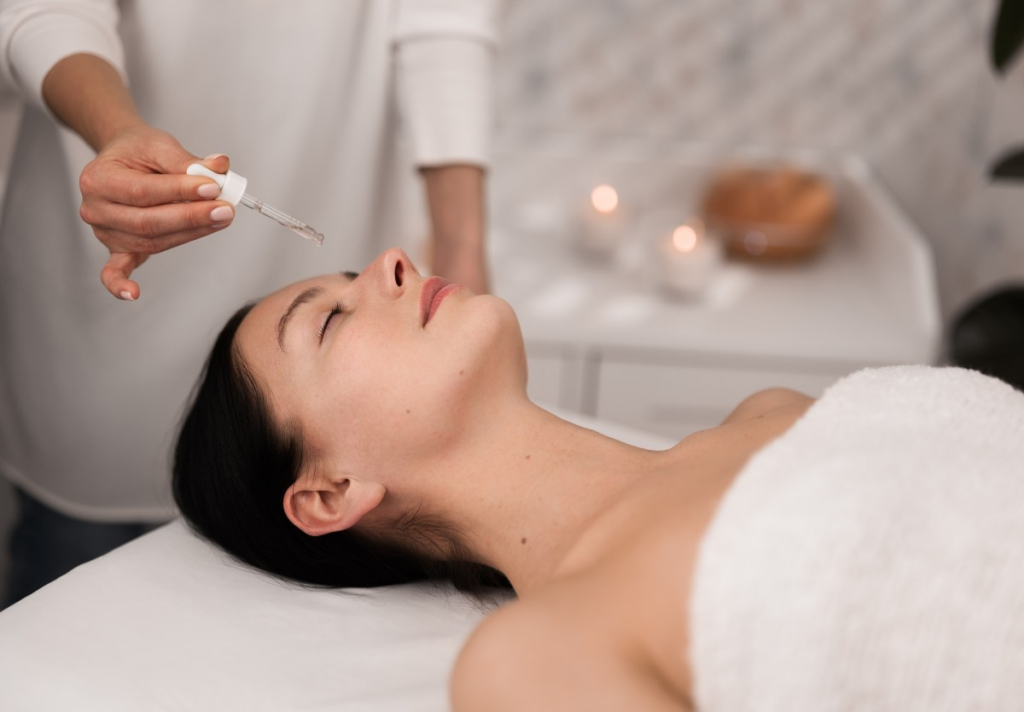
How often should you use aromatherapy for mental health?
For optimal mental health benefits, aromatherapy should be used regularly, ideally daily or several times a week.
Use aromatherapy every day or several times a week for real support to mental health. This can help create emotional stability and lessen stress. More frequent application—for example, via diffuser, topical application, or direct inhalation—will increase the action of essential oils and their positive effect on mental health.
Are there any side effects of using essential oils for mental health?
Essential oils are generally safe, but some people may experience allergic reactions or skin irritation.
While essential oils are mostly safe, potential side effects include allergic reactions or skin irritation. Performing a patch test before applying oils can prevent adverse reactions. Overuse or improper inhalation might cause respiratory issues. Consulting a healthcare provider, especially if you have underlying conditions, is advised to ensure safe usage.
How does aromatherapy compare to traditional mental health treatments?
Aromatherapy complements traditional mental health treatments by providing natural stress relief and mood enhancement.
Aromatherapy is used as a supplementing therapy for the treatment of mental problems. Aromatherapy insists on experiences related to senses and relieves natural stress. It differs from conventional therapies, including medication or psychotherapy. While the essential oils can act to raise moods and lower the levels of stress, they should not replace professional treatments but should support them.
Can aromatherapy aid in improving sleep quality?
Yes, aromatherapy can improve sleep quality. Oils such as lavender and cedarwood are known for their sedative properties.
Aromatherapy may also work on improving sleep by the application of some sedative essential oils. The one most commonly used is lavender oil, known for its great effects on relaxation and good sleeping. Other calming effects are obtained with cedarwood oil, which, therefore, can provide good sleep. Using these oils with a diffuser or a pillow spray before long enhances the good quality of sleep, reduces insomnia, and shortens the time taken before sleep.
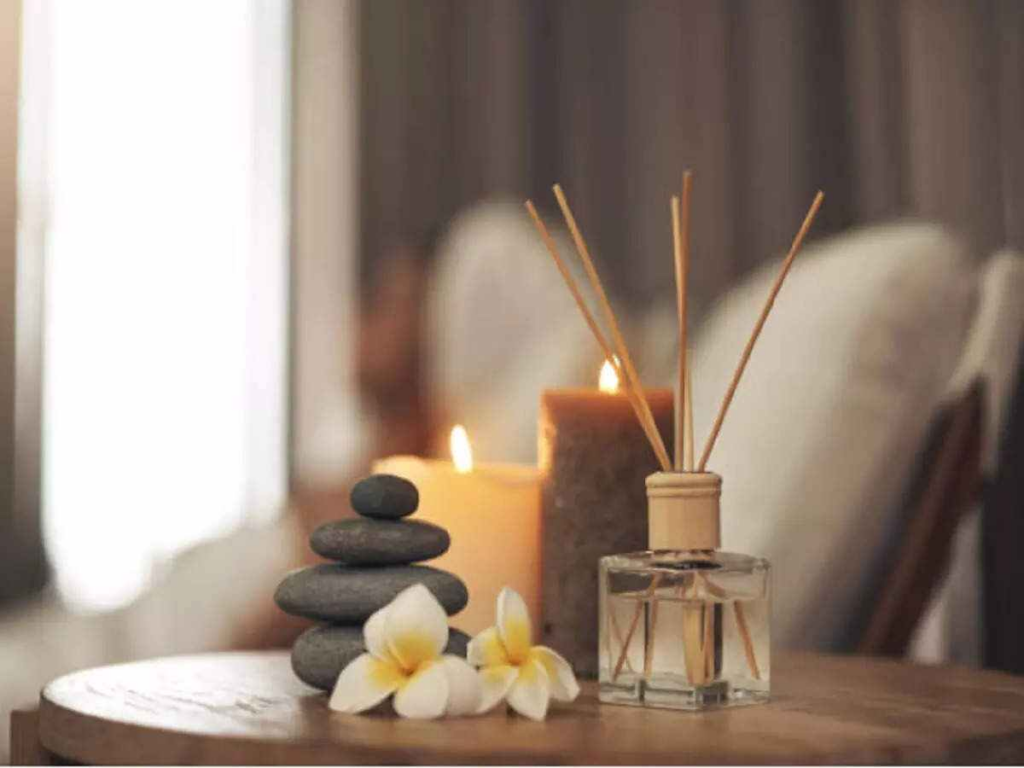
What role does the limbic system play in aromatherapy?
The limbic system, which regulates emotions and memory, is influenced by aromatherapy.
Aromatherapy has a direct effect on the limbic system, the seat of emotions and memory. According to this view, essential oils directly influence the limbic system because they are known to stimulate olfactory receptors that send signals to this specific brain region, thus modulating emotional responses and mood. Hence, reducing stress and promoting relaxation is possible through the mechanism, as essential oils may exert their effect on mental and emotional health.
Can aromatherapy be used alongside other mental health therapies?
Yes, aromatherapy can be used alongside other mental health therapies, such as psychotherapy or medication.
It can be effectively combined with other treatments in mental health, either as a complement to psychotherapy or medication. Aromatherapy supports these treatments by inducing relaxation and mood stabilization. Aromatherapy provides complementary benefits toward the healing of improved mental health and emotional well-being when incorporated into a holistic treatment program.
What is the best method for applying essential oils for mental health?
The best methods for applying essential oils for mental health include diffusion, topical application, and inhalation.
Essential oils for mental health can be used through diffusion, topical application, and inhalation. Diffusing oils spread the smell around the room for relaxation. Topical application applied to pulse points provides localized effects. Inhaling straight from the bottle works instantly to help mood and relieve stress.
Conclusion
Different mental health benefits are brought about by aromatherapy, including but not limited to stress reduction and improved mood. Therefore, adopting an attitude of mindfulness towards aromatherapy enables one to fully tap into these benefits. Personalizing one’s own experiences with aromatherapy guarantees optimal outcomes because it takes care of individual needs as well as preferences; therefore, try this out and see how much better you feel in terms of your psychological state.
References
Aromatherapy
Aromatherapy is a treatment in which natural plant extracts are used to promote health and well-being.

While many people think of aromatherapy as a method only of relaxation, it is, in fact, a serious form of holistic medicine whereby the physical and emotional well-being of a person is used with essential oils that stimulate a specific therapeutic effect. If you’re considering an aromatherapy session and have no idea what this may entail, then this article is for you. This will take you through every aspect of what preparation is right through to the actual session, as the procedure is explained, and the benefits are highlighted.
How does an aromatherapy session begin?
An aromatherapy session begins with a consultation to assess the client’s health, preferences, and goals. The therapist discusses any allergies or sensitivities to essential oils. This preliminary discussion helps in tailoring the therapy so that it can be safe and effective for the particular needs of the client.
The therapist is completely briefed about the client’s medical history, lifestyle, and current emotional and physical state. Based on the information provided, the appropriate oils to be used are chosen, and the style to apply is devised. Being aware of the problems that must be addressed and the expectation over the outcome of the session enables the therapist to plan an individual course in consultation with the client’s wellness objectives. This would be a therapeutic session, but enjoyable; hence, maximum positive results are guaranteed.
What techniques are used during an aromatherapy session?
The techniques that are used during an aromatherapy session, are oil massage or oil bath, with aroma inhalation, or diffusers. The therapist might use techniques like Swedish massage, acupressure, or reflexology. These methods enhance relaxation, alleviate stress, and promote healing by harnessing the therapeutic properties of the selected essential oils.
Massage using essential oils can stimulate circulation and reduce muscle tension. The oil is inhaled via diffusers or steam and absorbed via the respiratory system. Reflexology applies physical pressure at strategic points on a patient’s feet or hands, focusing on specific corresponding body areas to bring about healing.
All of those techniques will be resorted to on a case-by-case basis, depending on what the client requires, to ensure an integrated approach toward well-being.
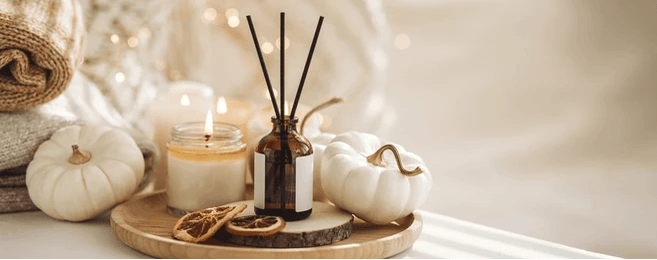
How are essential oils selected for a session?
Essential oils are selected based on the client’s emotional and physical needs, preferences, and medical history. The therapist considers the therapeutic properties of oils, such as calming, invigorating, or pain-relieving effects.
This blending done by the therapist will be an experience tailored for the exact health concern presented by the client. In the first place, it is necessary to understand what the client wants to achieve or experience, which could be relief from stress or pain. Depending on such objectives, the choice of oils with desirable therapeutic properties will fall.
Examples include lavender for relaxation and eucalyptus for respiratory-related issues. Blending several oils will enhance their synergistic effect and, as such, develop a therapy with the potential to impact many areas associated with health and general well-being. Other safety considerations, such as allergies, also play a key role in their selection.
What are the benefits of aromatherapy sessions?
The benefits of Aromatherapy sessions are, reduced stress, improved mood, and enhanced relaxation. Essential oils can also help alleviate pain, improve sleep quality, and boost immunity. These sessions promote overall well-being by using natural, holistic methods to support mental, emotional, and physical health.
The therapeutic nature of essential oils is what reacts with the limbic system of the brain associated with controlling a person’s emotions and physiological responses. This can lead to increased relaxation and decreased anxiety.
Aromatherapy can also help the body’s natural healing processes and promote a person’s level of energy. As such, it is able to maintain balance and wellness due to the fact that specific health concerns can be addressed through the customized oil blend.
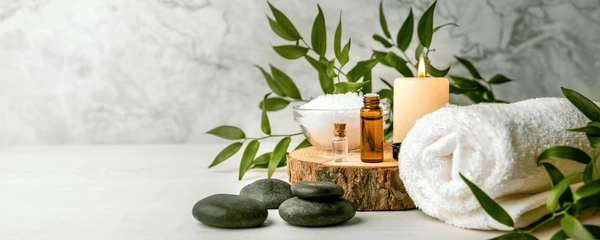
How long does an aromatherapy session typically last?
An aromatherapy session typically lasts between 60 to 90 minutes. This duration allows for a thorough consultation, application of essential oils, and time for relaxation and absorption. The session length can vary based on individual needs and the specific techniques used by the therapist.
The initial consultation typically takes about 10-15 minutes, after which there is the actual treatment phase, massage, or inhalation; this is followed by a rest time so that the client relaxes and allows the oils to penetrate his system. Advice given on how the client can continue the practice of aromatherapy at home actually adds to the efficacy of the therapy.
What should clients do after an aromatherapy session?
After an aromatherapy session, clients should drink plenty of water to help flush out toxins and relax to allow the oils to work effectively. It’s advisable to avoid showering immediately to let the oils fully absorb. Clients should also monitor their reactions and report any issues to the therapist.
Hydration will help in the body’s natural detoxification, while rest will potentiate the therapeutic action of the oils used. Abstinence from caffeine or alcohol is also indicated to maximize relaxation, where some clients may experience immediate benefits with respect to mood or energy level. They should, however, be warned about delayed reactions, such as skin irritation or headache, and should seek the advice of the therapist when this happens.
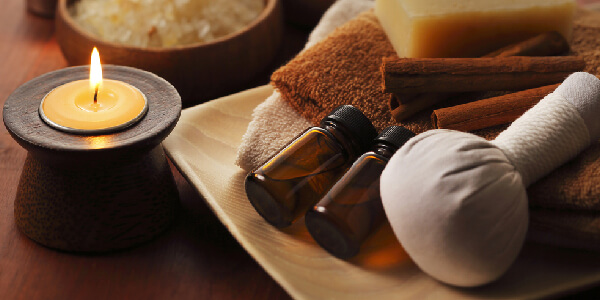
Can aromatherapy be combined with other therapies?
Yes, aromatherapy can be combined with other therapies such as massage, yoga, or acupuncture. This combination enhances therapeutic effects, promoting relaxation, stress relief, and holistic healing.
Integrating aromatherapy with complementary therapies provides a more comprehensive approach to addressing physical and emotional health. For instance, massage essential oils would be very effective for relaxation purposes and would act against muscle tension.
The practice of yoga along with aromatherapy has been shown to increase the depth of breathing and meditative experiences. With acupuncture, it may enrich circulation and balancing of energy within a person’s body. This approach maximizes therapeutic benefits by targeting multiple aspects of well-being simultaneously.
How frequently should I do aromatherapy?
The frequency of aromatherapy sessions depends on individual needs, goals, and responses to treatment. Generally, weekly sessions are beneficial for managing stress or chronic issues. For relaxation or occasional stress relief, bi-weekly or monthly sessions may suffice.
Personalized suggestions will ensure aromatherapy aligns with your health objectives and lifestyles. Though some of you may need daily inhalation techniques or home diffusers, others may need only less frequent professional sessions.
Always listen to the signals of the body and attune the frequency as necessary. Some essential oils, when overused, may create sensitivities; therefore, moderation and professional guidance in its usage are important in assuring safety and effectiveness.
Wrapping Up!
Others associate various benefits with the use of essential oils in massage sessions, which include relief from stress because they have been useful for holistic wellness-by addressing emotional and physical health issues, thereby making us feel better mentally too!
